





















PUBLISHER
Pawan Luthra
DEPUTY EDITOR
Sneha Khale
EDITOR
Rajni Anand Luthra
SOCIAL MEDIA
Neha Malude
MELBOURNE COORDINATOR


Preeti Jabbal
CONTRIBUTORS























PUBLISHER
Pawan Luthra
DEPUTY EDITOR
Sneha Khale
EDITOR
Rajni Anand Luthra
SOCIAL MEDIA
Neha Malude
MELBOURNE COORDINATOR


Preeti Jabbal
CONTRIBUTORS
Tarini
ADVERTISING MANAGER
Shriti Sinha 0410 578 146
ADVERTISING ASSISTANT
Charuta Joshi 02 9279 2004
Indian Link is a monthly newspaper published in English. No material, including advertisements designed by Indian Link, may be reproduced in part or in whole without the written consent of the editor. Opinions carried in Indian Link are those of the writers and not necessarily endorsed by Indian Link. All correspondence should be addressed to:
INDIAN LINK MEDIA GROUP
Level 24/44 Market St, Sydney 2000
GPO Box 108, Sydney 2001
Ph: 02 9279-2004
Fax: 02 9279-2005
Email: info@indianlink.com.au


Former Prime Minister Paul Keating was well known for his sharp wit and his cutting one-liners while he was in Parliament. His famous attack on the Senate in 1989, referring to it as the “unrepresentative swill” echoes loud in the folklore of Australian politics. As opposed to the Lower House where there is some clarity on who you are voting for, it takes a mathematical genius and days of tallying up of the votes for the public to know who actually made it to the Senate. And then also, the final result throws up parties which come from a diverse range of standpoints.
The Senate is one of the two Houses of the Federal Parliament, consisting of 76 senators, twelve from each of the six states and two from each of the mainland territories. It shares the power to make laws with the other House of Parliament, the House of
Representatives. Senators are elected for a six-year term, and half the senate is up for election every three years. What is important is that the Senate can put a brake on any bills being passed by the Lower House and this gives them the power to hold the government of the day to account.
With the Australian Federal election just days away, the polling seems to be favouring Labor as the new government post 18 May, although the gap is narrowing. The internal bickering amongst the Coalition and the revolving doors of its leadership still rankle amongst the public and some feel that they need time out from being in government to sort themselves out. The alternative option is the Australian Labor Party which, due to internal party rules, has had stable leadership after the debacle of the Rudd-Gilliard-Rudd Prime Ministership battles. While the mood is pro-Labor, there is concern about their proposed increases, either directly or by removing the current benefits, to certain tax policies. Negative gearing cut backs, changes to superannuation tax thresholds, franking credit benefit removals for
retirees, potential halving of capital gain discounts - Labor appears to have boldly gone where Opposition parties do not go pre-election. They may be a large target to attack now, but if elected, they will claim mandate to bring in these changes. In spite of the voracious attacks by the Coalition on these tax policies, by all accounts it could well be the ALP in power in the Lower House and Bill Shorten in the Lodge a week after his birthday on 12 May. However, the job of the unrepresentative swill, is to scrutinise the activity of the government of the day. And historically, it is seldom that the same party has controlled both the Lower House and the Senate. During policy debates on the floor of the House, the voting will take place along party lines, but the minor parties – the Greens, One Nation, DerrynHinch Justice Party, Palmer United Australia Party etc, will all have their say. Hopefully they will bring some balance in the debate of the Labor Party’s creed of Equality to the Liberal Party mantra of Opportunity.
The Senate vote this time will be important - cast it wisely.
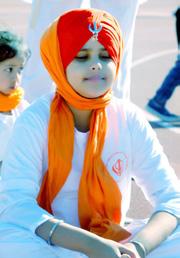

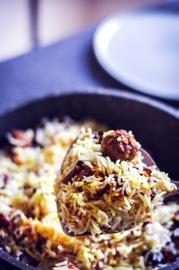




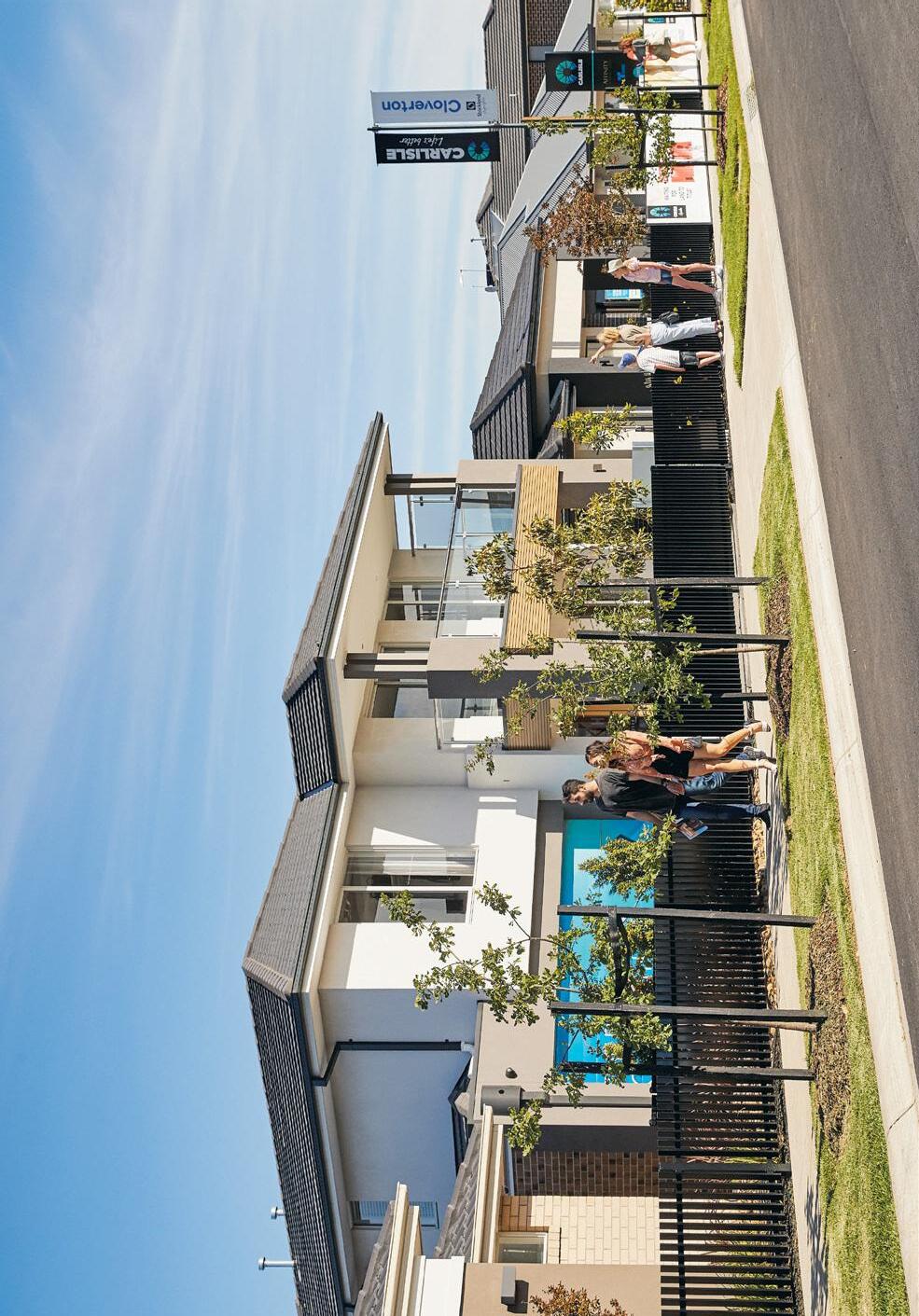








HARSHAD PANDHARIPANDE presented a well-researched article about FAQs if you have your parents visiting from India, with workable solutions for visa issues, health insurance, travel and social needs.

Krishna Kumar wrote: I am a retired Chief Engineer from Ministry of Power, Government of India. I have relocated to Melbourne to live with my children. I am involved in many social group activities and am president of a multicultural senior citizens’ association in the western suburbs of Melbourne.
The article “20 things you need to know” by Harshad Pandharipande has wonderful information for parents visiting from India. Hats off to the writers for answering Q. No. 19 about the social needs of your elderly parents. Social isolation is a significant problem for seniors on this foreign land. Please convey my best wishes to Harshad for such good coverage.
Sarita Khanna Juneja wrote: Good article. I wish you had also written about the starting point of the whole process in having the parents visit, ie, the procedure of applying for the tourist visa. When I did this for my own parents, I had no clue about supplying details on bank accounts and tax papers etc.
It was also interesting to read your expert’s view in the question about asking people if they are on the same flight to look out for your parents. I see this a lot on social media platforms, and have often wondered whether it is safe or advisable. But it always appears as though people are willing to help, so it must work, even though I would feel hesitant to put such a message out. I was glad the expert view was that we should avoid doing this.

PREETI JABBAL interviewed Senate Candidate Sunny Chandra (Independent) Krishna Kumar wrote: Just read the interview of Mr.Sunny Chandra, by Preeti Jabbal. She has proven her skills as an excellent journalist and deserves best possible commendations. I have met Mr. Sunny Chandra in person. I appreciate his concerns on immigration, as I am also on Bridging Visa and waiting for Permanent Residency. Being a hard core power engineer, I give full weightage to his views on renewable energy. In response to question on campaigning for his candidature for Senate, he spoke about the shyness of peoplein the South Asian community as regards entering politics. Perhaps we all need to join him to raise these issues at the appropriate forum.
CARL BUHARIWALA interviewed Khayshie Tilak Ramesh, the Victorian Multicultural Commission's new Youth Commissioner.

Bendigo Community Health Services wrote: Congratulations. Such a wonderful acknowledgement of the work and effort you put into community.
Ming Go wrote: Good message, be who you ARE!
Sylvester Swampillei wrote: Great work Khay
Reine Pannell wrote: You. Are. Awesome.
We congratulated Sandeep Pandit and Dee Williams on making it to MasterChef Australia’s 2019 Top 24


Sandeep Pandit wrote: Dee and me... Please wish us luck for MasterChef Australia 2019
Rajeshwari Channakrishna wrote: Winning smiles, both of you.
Amit Rawal wrote: Congratulations! Wish you good luck and happy times.
Rene Singh wrote: Wishing you both phenomenal success on your MasterChef journey!

Ingrid Mildon wrote: All the very best you two! I really am enjoying seeing the dishes you cook!
Shruthi Krishna wrote: There are very few people for who the judges taste the food and say please leave your plate here, just go. Ha ha, that was amazing!
Atiya Gazali wrote: Good luck to both. So happy to see people from the subcontinent make it to MasterChef.
Aditya Pandit wrote: Good luck, guys.
Shammi Prasad wrote: Looking forward to watching you guys cook a milestone.
Dee Williams wrote: Thank you all.






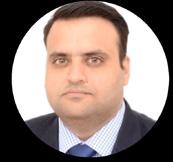


Welcome to Indian Link, Prime Minister. Great to be with you.
To use rugby terms, we are almost in the last quarter of the game, where your team started well behind on points. Where do you feel you are now, with respect to the 2019 election, and as captain of the Coalition team, what do you need to do to get over the line on 18 May?
We’re going to keep focusing on what the choice is of this election and explaining that choice to Australians all around the country. It’s a choice between myself as PM and Bill Shorten. It’s a choice between a government that has already legislated and will continue to reduce taxes for all Australians, and not increase them like Bill Shorten and the Labor Party will do. A government that knows how to manage money and is bringing the budget - has brought the budget - back into surplus next year, which means we can pay down Labor’s debt, and a Labor party that will see $387 billion of higher tax and a record of not being able to manage money. You know what, when you can’t manage money you always spend more of it, and you always come after people in higher tax [brackets] to make up for your inability to manage money - that’s what we saw with Labor. It’s a choice between having a stronger economy - the Indian community is our largest source of migrants to Australia, and they came for the opportunity, for their family, for their children, and they want to be part of a stronger economy.There is a much higher proportion of migrants, 1 in 3 in fact, who work for themselves and run their own businesses, and they’ve come here for that.
So they come to the country of opportunity. That’s right. And that’s why our policies, which are designed to ensure that (particularly) small and family businesses continue to do well. That they can be in an economy that’s stronger, and not weighed down by higher taxes, meaning that your money is better off in your hands than the government’s, and you can realise the dream and have the promise that was made in coming to Australia fulfilled.
Prime Minister, you come from a family which seems to be drawn to politics. Your father John Morrison, was a policeman who served on the Waverley Municipal Council for 16 years, including for a brief period as mayor. What drives you?
Family drives me. Family is the most important thing in life for me. But Australian families have three very honest and decent aspirations: they want to be able to get a job, raise their families, and work hard. They want to be able to buy a home and live peacefully in it. And they want to be able to save for their retirement so they can be independent. I want Australians to achieve all of those things, and at this election Bill Shorten wants to tax all of them more and
get in the way of those decent, hardworking aspirations. So as a politician, and particularly as PM, what I am seeking to do, and have been doing is, get the obstacles out of the way and ensure that we can keep the promise to all Australians that you’ll be able to pursue these dreams, that you’ll be able to realise your opportunities, and not have a government penalise you for doing just that, which is what Bill Shorten and the Labor Party propose to do.
During your tenure in politics you served as Minister for Immigration and Border Protection in the Abbott Government; then in the 2014 cabinet reshuffle, you became Minister for Social Services. You were promoted to Treasurer in 2015. And now of course you are Prime Minister. Which one of these posts did you find most challenging and looking back, where do you feel you made the most difference?
I’ve got to say I found them all genuinely equally challenging. They were quite different and needed different skill sets. Serving in each of those portfolios has given me a depth of experience to be doing the job now as PM. You’ve got to have a good understanding of the government’s finances, of what drives the economy, and as treasurer I was able to do that. As Social Services Minister, you need to understand the difficulties and strains that are experienced by Australians often in the most difficult of circumstances like people with disabilities, people with very low
incomes, and ensure that our social safety net can connect to them and that we can get more people off those safety nets and into jobs, because the best form of welfare is a job. And obviously as Immigration Minister, my record in border protection and stopping the boats is reasonably wellknown. But the reason I did that wasn’t just that it was enough to stop the deaths at sea, but because I wanted to protect the integrity of our immigration programs. I’ve always been a big believer in immigration and its role in making our country stronger economically, our society stronger. But I know it only works when Australians show confidence in it, and Australians don’t have confidence in an immigration system when borders aren’t being properly protected and the Immigration program just sort of runs off on its own and doesn’t have clear rules and rules that aren’t enforced. The people that trust the system, they have to have confidence that it’s being run properly, and I was very proud as an Immigration Minister to have delivered that.
Prime Minister, you are on record talking about the economic benefits of immigration.
In 2016, speaking at Sydney’s Lowy Institute, you emphasised the importance of “keeping the door open on our economy to help increase earning capacity and boost living standards”. But now, you are cutting numbers from 190,000 to 160,000. Is that pandering to the hard right of your party
or are you trying to win support from One Nation voters?
Absolutely not. Again, it’s for the same reason why I protected the bordersAustralians have to have confidence in the program, and our population growth has been running too hot. That’s been putting a lot of pressure on our big cities, particularly in Sydney and Melbourne. When people came to this country as migrants, they didn’t come to sit in traffic jams and have their quality of life deteriorated because of population growth that was getting too great. So we’re managing the migration program to ensure we keep population growth under control so we can keep that promise to the migrants who have come to Australia, that they can enjoy the quality of life in our cities that they came to enjoy. So we’re managing the program responsibly and that’s why we’ve made those changes; to ensure that we can keep the program well supported and that’s what we’re achieving.
But will they find jobs where you’re sending them? Unemployment rate in SA for example is 5.7% compared to 4.3% in NSW and 4.8% in Victoria. Will that not put more pressure on the new migrants?
No, because the areas where people will go are where there are opportunities. And in South Australia, we’re seeing a big turnaround in the economy. We’re seeing a big turnaround in the Tasmanian economy, and there are parts of Australia right around the country who want more migrants. In Sydney and Melbourne it’s getting choked and congested, and that’s where we’re looking to manage the program. But in other parts of the country, they’re very keen to see migrants come, and provide jobs, and to have their support and their involvement in their local communities. So I think it’s a win-win.
There seems to be a sharp growth of independent parties like One Nation, UAP etc. What role do you see for them in Australian politics?
These parties ebb and flow between elections. The thing about independence and these minor parties is they’re not going to run the government, they’re not going to reduce your taxes, they’re not going to keep the economy strong, they’re not going to protect the borders, they’re not going to do any of these things. That’s what the Liberal Party does, with the National Party informing the government. So I would suggest that those who have interest in what some of those smaller parties are talking about, they won’t be able to do anything about it. The large parties on our side of politics - the Liberals and Nationals - we can do something about those issues and that’s why I’m urging people not to vote for the minor parties and vote for the Liberal and National parties, because we’re the ones in government that can take real action on the things that are of concern to Australians.
‘An
Another policy which is creating much discussion in the Indian Australian community is the fairness of your party’s temporary sponsored visa compared to the ALP’s proposal. Your proposal is capped places of 15,000; ALP is uncapped. Your proposal allows families to elect one set of parents only to unite with, ALP allows both sets. The cost of the visa is 4 times the ALP cost. Your thoughts?
Well, we’ve made available that temporary parent visa, and that does provide the opportunity that previously wasn’t available to ensure that people can come and be reunited with their families. One of the things that we do have to do is manage the program responsibly, and there is concern that having an unchecked, unconstrained migration program will only undermine the confidence in the program and contribute more to integrity issues within the Immigration Program itself. It’s just part of our responsible approach to managing immigration. When immigration is managed well, Australians support it very strongly. Under the Labor Party as we saw previously, it wasn’t seen to be handled well and it wasn’t handled well; that can only hurt migrant communities because it makes the program less efficient and as a result there are greater calls in the community for migration programs to be seriously reduced. I don’t want to see that, and that’s why we stand by having proper controls in place and extending the opportunities we can. And if after a bit of time, we think we can do better than that, we certainly will. I wouldn’t trust Labor on these things - they say a lot of things but they rarely do them, and the costs that are ultimately involved and the price is paid, you are paying for in higher taxes. So when Labor says they are offering you something, check your wallet, because that’s where you’ll find the answer to what they’re offering youyou being taxed more.
Talking about India-Australia relations, it seems to be limited to the four CsCommonwealth, cricket, coal and curry. There really does not seem to be a strong connection especially in trade and commerce. The bilateral trade needle is stuck in spite of the rapid growth of the Indian middle class. If re-elected on 18 May, what more steps will you take to take this relationship more forward?
I would certainly make a visit. There’s been invitations for that but I’ve had to have the election and we’ve been very focused on that. But I would be seeking to follow up on those
meetings. I met with PM Modi on several occasions. We’ve had the major piece of work that we had done on commercial relationship with India recently and we’ve responded to that report, so there’s a lot to get on and do there. I agree that the opportunity for the relationship is far greater than what it has been to date and that is a view shared by India as well. And on occasions where we’ve sought to broaden that relationship, there have been some obstacles in trying to get through that in terms of dealing with government and bureaucracy and so on, and we have to persist and try and get through these barriers. Because the synchronicity between Australia and India, I think, is significant. Culturally, we’re aligned. In terms of values, and what we’re about - peace-loving people, rule of parliamentary democracythese are values we all share, and this is why when I often talk on India’s national day, it is a seamless transition from coming to Australia as a citizen of India and becoming a citizen of Australia. There’s no big value shift in doing that. It’s just a natural, and I think an easy transition, because the values of the countries are so similar. They are so aligned between our countries there’s an obvious next step to those relationships.
I’d be looking forward to visit there again; I’ve only been on one occasion and very briefly. My wife has been there many times and she loves it. She absolutely loves it. She’s been keen to take me there just privately for many years.
There is a strong feeling of difficulty in doing business in Australia within the business community in India, after the constant delays and challenges which the Adanis have faced. They have successfully fought off all legal challenges thrown at them by environment and other groups, yet it has taken them this long to get Federal approval for this project. Has there been hyperventilation against the Adani group, and what effects from that flow on to Indian businesses wanting to invest in Australia?
I was very disturbed to hear Tanya Plibersek say, if Bill Shorten is elected PM and Tanya Plibersek will be the Deputy PM, ‘An Indian business cannot be relied upon to grow jobs in Australia’. Now apart from it being deeply offensive to the Indian business community in Australia - I know people of Indian background who are running businesses here employing lots of people and have been immensely successful and highly entrepreneurial - to suggest that Indian business can’t create jobs in Australia as Tanya Plibersek has done, I think is not only deeply offensive but it’s economic nonsense. Remember it was Tanya Plibersek who thought Africa was a country, so we’re not going to take too many tips from her about geography or matters regarding ethnicity of businesses. But when it comes to the relationship, we have to get over those issues. I believe that those types of comments have impacted investor sentiment in Australia, and that’s
Favourite curry to cook?
The girls love butter chicken. Not the most healthy, but it’s a special treat every now and then that I cook for them. I haven’t done too bad on the vindaloo on occasions too by the way, but I’m a big fan of anything to do with the kormas. I also do quite a number of Sri Lankan dishes, and southern Indian dishes - you know, the ones where you cook with coconut oil and coconut milk and you put in some leaves and limes, that adds a bit of a different taste to it. I quite like those, particularly in summer.
Rumours are that you want to write a curry cook book called “Curry Nights with ScoMo”. True or false?
(Laughs) I should, shouldn’t I? I don’t know when I’d get the time. I must admit, all the recipes I use I borrow from the celebrity chefs. I enjoy it. I always found it very relaxing and it’s my meal of choice pretty much anywhere I go. If there’s a curry on, you can find me there.
Perhaps at a later time, Indian Link and PM Morrison can collaborate on a book? (Laughs) Sounds good to me. And we can support one of the local Indian charities.

We have a deal on the table, then. Done.
It appears Mrs Morrison has a good sari
collection - have you helped her select these?
She looks gorgeous in a sari. She loves wearing them, she just loves the colours and the fabrics. She’s in love with India. She’s been there on a couple of occasions with a small business that she’s involved with. She loves the colour, the culture; it’s so vibrant and every time she comes back she’s just had an absolute ball.
An Indian personality who has made an impression?
Narendra Modi. He’s quite an impressive man, very devoted to his country, and with a very clear sense of India’s independence. I think that’s why he’s had such strong support. India is a very difficult country
why it’s important that Tanya Plibersek doesn’t become the deputy PM of Australia. But beyond that, I think there are equal frustrations of Australians trying to do business in India, and these are the things that together as governments we have to try and overcome.
Finally, your message for the Indian Australian community, in the lead up to the elections?
Firstly, Namaste. More broadly, the reason you have come to Australia is to be part of a country that provides opportunity, that provides choices, that backs your judgment that you’re the right one to make the decisions for you and your family and for your community, and the policies that we’re putting forward at this election are about continuing that. The Labor Party’s higher taxes, not being able to manage money, taking money off you to spend on what they think is important, rather than letting you make your decisions about what you think’s important, I think goes very much against why you would have come to Australia in the first place - whether you’ve come more recently or you came generations ago for a better future for your family and your children. So that choice is there: it’s a choice to keep the promise that you made to yourself and to your children in coming to Australia by having a government, our government, the Liberal National government, which will also keep that promise to you and your family.
manage - I think he knows that better than anyone else. But he’s shown great leadership for India, and has been a very positive leader in the world more generally. I think he’s seen and respected in that way by other world leaders, including myself. I’d love to see him back in Australia. I know the Indian community would love to see him too. Last time he was out he was a rockstar. He’s a very charismatic guy, and a very humble man. I sat with him at a dinner at the MCG once, and it was just the two of us. There were obviously a lot of people there that night but we were at a table together and we talked about everything. Including curries, I gotta say.
Welcome to Indian Link, Mr Shorten. Namaste and thank you for having me on Indian Link.
Your party has been leading in all the polls for a considerable time now but recent reports have indicated a tightening. Where do you feel you are now with respect to the Elections 2019, and what do you need to do to get over the line on 18 May?
I feel that the Labor Party, united, with a plan for the future, is the best plan at this election for the Australian people. We want a fair go for all people. We want to support families with the price of childcare so we’ll give them subsidies; we want to look after older people so we’re going to provide dental care support for older pensioners, and we also want to start taking real action on climate change and help people’s wages get moving. This is real change. By contrast the government is chaotic and divided - when you voted for Tony Abbott you got Malcolm Turnbull, when you voted for Malcolm Turnbull you got Scott Morrison, and when you vote for Scott Morrison you’ll get Pauline Hanson or Clive Palmer. Too much chaos.
Mr. Shorten, there has been an emergence of small political parties in the recent past. What are your thoughts about this? Do these parties have a role to play in politics, or to paraphrase one of the ALP legends, are they the ‘unrepresentative swill’? It’s up to people who they vote for, but you always have to study the details. What Labor has is we are one of the two parties who can form a government. Australians are sick and tired of chaos, they’re sick and tired of politicians squabbling with each other. My plan is to put people first. We’ve got some very exciting foreign policy, we’re very keen to help improve our relationship with India and take itto the next level. But perhaps one thing which would be of particular interest to your media consumers, is we are going to reform and deliver a fairer, long-stay parent visa. Many elderly parents want to reunite with their families living in Australia, but they have to travel to Australia as tourists. This is costly, frustrating, disruptive and exhausting as they ferry between our two countries. Problematically, Mr. Morrison’s Liberals have got an unfair temporary-sponsored parent visa which has a $40,000 fee and is capped at 15,000 people. The visa can only be renewed from overseas, forcing families to send money on costly overseas exchange. The parent visa issue is causing much discussion in the community at the moment. Your proposal is uncapped and

also allows families to have both sets of parents to unite with. Wonderful for the migrants no doubt, but the criticism is that
it is policy on the run and could well open up waves to ‘grey immigrants’. According to the Migration Program statistics, there are
over 100,000 applications for permanent visas which will flow across. While good for the migrant community, is this not a policy to buy migrant votes?
You can’t have it both ways. You can’t say on one hand we’re ignoring migrants, or on the other hand we’re doing too much. You pick the critique. I pick families. The reality is the cost of childcare is very expensive. Why should people who’ve come to Australia be denied the chance of seeing their parents and grandparents come and visit so they can stay with their family and see the little children? I think this is part of being a multicultural society. People say that this will lead to too many grandparents visiting, but if you’re a working family in this country and your grandparents turn up and are able to help mind the kids, you don’t complain, you just say thank you.
Let’s turn our attention to Indian-origin Australians, who are now about 2.4% of the Australian population and growing. What strikes you most about our community?
I think Indian-Australians make good Australians. I think they’ve got a value to faith, value to family, and they’ve got a work ethic second to none. I think being a migrant is a courageous thing to do. I’m not like some of the far right who say we should never have migrants. We’ve got to have an orderly program. You want to make sure that you don’t bring in too many people at one time so that you make sure the infrastructure keeps up, but in my experience Indian migrants tend to be good taxpayers, small business entrepreneurs, and we see them doing very well at schools and universities. So, I think IndianAustralian migration is a net plus for the Australian story in the future.
Mr. Shorten, the Coalition is cutting immigration numbers from 190,000 to 160,000. Where does your party sit on this issue? If you were to win government, will you keep the existing numbers or slash them? I think the government is pumping up its own tyres without actually being truthful. The reality is that the technical number is 190,000. Last year there were 152,000 migrant citizens, this year they’re saying 160,000, so I think their bark is louder than their bite. The reality is that we’ve got the same view - 160,000 - but this government is trying to have it both ways. We’ll be guided by the experts [regarding numbers], but for me migration shouldn’t be a political football.
I am keen to learn your views on the potential of a trade relationship between
Shorten talks
PAWAN LUTHRA about why he deserves a turn in government, about issues of concern within Australia’s Indian community, and about the Australia-India relationship
People say that our long-term parental visa program will lead to too many grandparents visiting, but if you’re a working family in this country and your grandparents turn up and are able to help mind the kids, you don’t complain, you just say thank you.
India and Australia. There’s much talk about it but the relationship seems to be limited to the four Cs – Commonwealth, cricket, coal and curry. There really does not seem to be a strong connection in another C - Commerce. The bilateral trade needle is stuck in spite of the rapid growth of the Indian middle class. If elected on 18 May, what steps will you take to move this relationship more forward?
We’re going to unstick the needle. Our exports - we rank 5th behind China, Japan, Republic of Korea and the US. In imports we’re 13th, but I’ve got no doubt we can boost the trade. We’ve got a policy called ‘Future Asia’; Australia and India are secular outward-looking multicultural nations who respect and cherish liberty and democracy. In a practical sense, we support in principle the Ten Priority Recommendations of Peter Varghese’s India Economic Strategy. We want to hold an annual Australia Week in India Trade Missions focusing on the 10 sectors identified in that document. At the moment Trade Missions to India are only held every two years.
I think there’s a number of (other) things we can do. We can teach more South Asian and Asian languages in our schools. We can improve the Asian literacy of Australian company directors. We can do more in terms of air links between Australia and India. The less time it takes people to have to stop somewhere else between Australia and India, ie if we can create an airbridge, then there’s more opportunities for commerce.
I also want to set up a reciprocal internship program to allow recent Australian graduates to help build Asian business capabilities for young Australian professionals to work with the Indian government.

You mentioned the four Cs - but I think there’s another C, Culture. What we have to do is view India not just as a source of students but as a two-way exchange between our universities.
So better soft power exchange?
People are people, always beats everything else. There is a strong feeling within the business community in India about the difficulty of doing business in Australia, after the constant delays and challenges which the Adanis have faced here. They have successfully fought off all legal challenges thrown at them by environment and other groups, yet it has taken them this long to get Federal approval for their project. Has there been hyperventilation against the Adani group,and what effects from that flow on to Indian businesses wanting to invest in Australia?
I think you’ll find that my view on mining projects shouldn’t be based on the country of origin of the company. More so the quality of the project. I can understand from the press coverage why people might see some of the stereotypical debate, but
this is the case: Indian direct investments are welcome in Australia. Of course [regarding] Australian direct investment, we need to improve opportunities in India, and as you know, that’s not as straightforward as it sounds. But let’s make that a commitment to a shared work in progress.
Mr. Shorten, your message to the Indian Australian community in the lead up to the election?
Namaste, my name is Bill Shorten. I seek to be Prime Minister of Australia. I acknowledge the contribution of the Indian-Australian community to Australia. No one is ever unhappy when an IndianAustralian family moves next door. They know that their neighbours bring with them a sense of history and pride, a sense of family and hard work. Labor believes

You have attended many Indian community functions. Any which stands out and why?
You never go home hungry! You never go home without having made new friends. We’ve got some shared history. When Gandhi was put in jail, the Australians had to beat the English at the Ashes. The ties of language provide easier opportunities for our countries. Indian-Australians get more involved in the Labor Party. Victorian Labor is very successful in electing Indians - same with the Labor Party more generally, from Western Australia to Victoria.
PM Morrison boasts of his curry making skills. Where can you match him on your knowledge of things Indian?
I’ve studied Indian history. I’m very familiar with 20th century Indian history, and the ethnic and religious challenges. So I would back myself with having some knowledge of Indian history which I think is useful for an understanding of where a society goes.
When you visited India, what struck you most?
The dynamism. Dynamism, history and pride. On the day when it was the anniversary of
Gandhi’s birth, I was struck by the sense of national pride that people had. I went to the government building, and learnt the massive history of the event (of Independence).
in supporting middle and working-class families in this country. A vote for Labor will see real action on climate change and lower energy prices. A vote for Labor will see $2,000 subsidies to families with every child in childcare to help them with cost of living. A vote for Labor will see us getting wages moving again. A vote for Labor will also make sure that we have the best healthcare system in the world, and a vote for Labor will support the pensioners and Commonwealth Seniors Health Card holders to be able to get new support for the cost of dental treatment in their later years. A fair go for all.
Mr Shorten, with but a few days to go now, we wish you the very best in your campaign and look forward to talking with you on the other side.
Favourite order at an Indian restaurant? My family love butter chicken, but I’m a dry curry man myself. I like some of the Goanese cuisine, I know it’s not strictly Indian, but there’s some great stuff down there.
Your birthday is on 12 May. Should you postpone it for a week, and host a celebration at The Lodge on 19 May, a day after the elections? And if sowould sco-mosas, sorry samosasbe on the menu?
No, but I’ll tell you what matters to me. I want to make sure that the country is run in the interests of the working middle-class people. I’m very proud of our multicultural identity, I think this country works best when we work together, when the pensioners get looked after, when the children are being supported, when small businesses can back themselves and we welcome migration. Samosas will happen: I’m getting fitter during the campaign so I think some indulgences will be good.
AFederal election survey conducted by Indian Link has shown that the two leading parties are neck and neck as far as Indian-origin voters are concerned - but there’s a surprise find, an unprecedented rise in support for a third force.
It’s still a while to go before the Federal elections of 18 May and both major parties are still in first gear. Yet, both have been pretty upfront about their policies. The Coalition has gone hard on their economic credentials, the Labor Party is emphasising its health platform, especially the benefits to cancer sufferers and their families.
Both parties also come in with their shroud of worries. The Liberal party has had a rapid change of leaders, more in the party room rather than at the polling booths - Tony Abbot, Malcolm Turnbull and then Scott Morrison. The Coalition’s hard right seems to have an extraordinary hold on the policies of the party – climate change, energy management, immigration policy etc. The Labor party goes into this election with a swathe of new taxes or removal of tax benefits, such as abolishing the benefits of negative gearing for future investment properties, halving the capital gains tax concessions, cancelling the franking credits to select pensioners and other tax tightening policies.
It’s early days yet and one is sure as the campaigns roll out, there will be more incentives doled out from both platforms. The political messaging will be tightly controlled and the race to the finish on 18 May could get frantic and mistakes can be made (Remember Labor’s- or rather its leader Michael Daley’s - brutal last week at the recent NSW elections?).
So, what do Indian Australians make of it all?
At this stage, it seems that the community is equally disillusioned with both major parties - and this is where the surprise find is - support for a third force, the Greens, is up like never before.
Yet, the economic management of the economy and employment issues is appealing to the Indian Australian voters and bucking the national polling trend gives the elections by the narrowest of margins to the Coalition.




Indian Link’s election survey, undertaken online and face to face at select Indian spice outlets in Sydney on the weekend of 13-14 April, gathered data on voting intentions from 632 respondents. 85% of those surveyed were from NSW, and 5% each from Victoria, South Australia and Western
Australia. The genders were skewed with more males (56.5%) than females (42.6%), while a small proportion chose not to disclose.
There was a healthy mix of new migrants and those who have been here for a while.
30% of our respondents reported they have been in Australia for less than 5 years; 38% of the respondents between 5 and 20 years, and 28% over 20 years.
The Coalition snuck in by a whisker with 38.2% of the respondents favouring them over Labor (37.9%).
The surprise factor were the Greens, who claimed 20.3% of the vote.
Nearly four per cent indicated support for other or independent candidates.
“Do not want Labor or Liberal or Greens; need an Independent who fights for the benefit of the constituency not the pockets of political parties,” was a comment heard in the face-to-face interviews.
The Green vote, which is usually preferenced to the Labor Party, could well
give Bill Shorten the keys to the Lodge.
Traditionally, the Indian community vote has favoured the Labor Party, which is perhaps more in tune with the Indian cultural ethos favouring health and education. As the community has matured from the working class migrant group to those establishing, growing or being involved in small businesses, we’ve seen the emergence of a shift away from Labor towards the Coalition (as indicated by previous Indian Link polls). This has been enhanced by the new migrant voters surveyed this time round, who have given economic management a higher rating than health issues, perhaps tilting the pendulum slightly towards the Liberal party.
It is interesting to see the increasing support for the Greens (20%), numbers never seen before in previous Indian Link polls of state or federal elections. Environment issues are beginning to matter, as climate change concerns come closer to our lives in terms of extreme weather for instance, and as passions increase for the protection of our natural sites such as the
Barrier Reef.
When many South Asian-origin Australians first arrive here, they admit to being amazed that the Greens are a strong political platform in this country rather than a social-environmental movement. In recent years though, they have begun to understand the need for why such a movement might need political clout, especially with climate change, and with the urgency with which we need to adopt more sustainable life practices. The Greens’ rhetoric for compassion towards asylum seekers, their call for greater diversity, as well as their calling out of the far right voices in Australian society have no doubt touched a chord. The emergence on the scene of firebrand South Asian origin politician Mehreen Faruqi may perhaps have played a role too.
Again, bucking the national trend, from a leadership point of view, Bill Shorten is clearly favoured ahead of Scott Morrison.
Though it is early days in the election, the stability at the top of the ALP has ensured that Bill Shorten has been visible to the Indian Australian community: Bill has been seen at various Indian functions over the last three years. PM Morrison’s leadership started only eight months ago in August 2018, and though he has attended a few community functions, he has not had extended interactions with the community.
Larger numbers within the Indian Australian community seem to have higher faith in Bill Shorten. One respondent said, “At least I believe, if Bill Shorten is elected, he will be around for a while. On the other hand, have no idea of what bloodletting will be done in the Coalition, even if Mr. Morrison becomes Prime Minister again.” Of course this observation is factually incorrect, and perhaps the Coalition must take more pains to point out that they have new safeguards in place now, about rotating leadership.
Others however have expressed their concern at Bill Shorten being beholden to the Union movement. “What will be good for business within the Indian community is for Bill Shorten to work more constructively with them, rather than being the front man for the Union movement,” another respondent said. The survey also revealed that the Indian Australian community, in large, is not concerned about the backroom shenanigans in the Coalition. In our 2016 election survey too, it had emerged that the change from Tony Abbott to Malcolm Turnbull in 2014 as leader of the Liberal Party and subsequent
party do you think better formulated immigration policy?
Prime Minister of the country had no impact on voting intentions of the Indian Australian community. More than 51% had said then that the changeover had no influence on their voting decision.
This is also reflected in the current survey where 46% of those surveyed said the change in leadership in Coalition did not affect their choice. Perhaps, hailing from an Indian background where there is an expectation of political manoeuvrings as par for course, changes within the party do not amount to much: the understanding is that there will be continuity at the policy level.
Likewise, the tax changes proposed by the Opposition also has made little impact, with 45% saying that these tax changes had not influenced their decisions.
The long-held view within the community has been that the Labor Party will address community concerns better. This was borne out at the 2016 survey as well (Labor’s 53% to Liberals 40%). But this year, the Liberals seem to have closed the gap - 44.1% as opposed to Labor’s 45.3%. The Liberals have made admirable ground here as they increasingly reach out to the community. Ten per cent were clearly impressed by the Greens, who have done well at the expense of the Labor Party.
The cuts to immigration by the Liberal party has not resonated well with the community with 52.4% expressing more confidence in the Labor party immigration policies, as compared to 47.6% by the Coalition. One example is the issue of long-
Which Party would be better for the Indian-Australian community?
stay visas for parents: though the Liberals are pushing this now, it seems the sponsors must have a substantial joint family income of over $80,000. “That is a lot of money,” said one respondent, “especially if we are buying them health insurance, why should this level of earnings be required?”
As to which party will forge better relations with India, Liberals have surged ahead at 52% as compared to ALP’s 48% (At the past Federal elections, these numbers were the other way around, with a Labor getting 48% of the votes and Liberals 46%). Prime Minister Modi’s trip down under, and his friendly vibes with the then Prime Minister Tony Abbott were fondly recalled by more than a few respondents.
With the White Paper of an Indian Economic Strategy 2035 on the table, it is widely believed that the potential is there for enhanced engagement. Whichever party comes to power now, will need to step up efforts to take this relationship forward. “After the Indian elections are done in May, and with the new Australian government in place, it will be a good time for the newly elected leaders to start afresh,” one respondent said.
The election themes of both the parties have resonated well with Indian-Australian voters but the Australian economy and employment edge out education and healthcare as issues that concern most.
Which Party do you think will forge better relations between India and Australia?

Which Party do you think will offer better immigration policies?
Indian voters are aspirational migrants wanting to succeed in their new country and feel that a strong economy and strong employment will allow them better opportunities. While health is important to them, being a younger migrant community, it has only come in at third position in terms of issues concerning the voters.
Surprisingly, environment came up as important and is ranked above education: the Greens with their pro-environment policies are certainly making themselves heard in the Indian community.
But in the end, it all comes down to the hip pocket again, just as our previous surveys have shown. It’s the economy – for sure.
To recap, support for both major parties is on an even keel, perhaps closer in numbers within the Indian Australian community than what is being seen in the mainstream polling. The Coalition needs to reach out to the community more strongly, as their key message of strong economy and jobs is an accepted mantra for the community - they need to build on this message, or the threat to this which might come with a change in government.
The Labor Party has been making strong overtures and Bill Shorten seems to have an edge over Scott Morrison, again in contrast to the mainstream polling. The Greens and the independents are increasingly attracting the Indian Australian vote.
There’s still some time to go before 18 May but on early count, it would seem that the Labor-Green link is currently holding sway in the Indian Australian voting psyche.
Rank the following issues of concern that have influenced your decision, in order of importance (e.g. if 'Health' is the most important issue for you, rate it as 1).
At this stage, it seems that the community is equally disillusioned with both major parties, andthis is where the surprise find is - support for a third force, the Greens, is up like never before.
Chris Gambian: My parents grew up in India, where it is so easy to see the effects of inequality and injustice every day. Their deep sense of right and wrong rubbed off on me and led me to an awareness of the world around me. It was a very short step to Labor, which places fairness and equality at the heart its agenda.
Vivek Singha: I am passionate about science and technology and the ways it can transform human lives, particularly through medical advancements. The Morrison Liberal Government’s record investment being made in health with 2,000 additional medicines added to the Pharmaceutical Benefits Scheme and the nation’s first sports plan, Sport 2030, encourage active and healthy lifestyles. Record levels of health funding specifically and the many other great Liberal initiatives along with a great leader in Scott Morrison convinced me to join the Liberal Party.
Nikhil Aai Reddy: For far too long, the major political parties have put forward their party agenda rather than putting Australians first. Vital infrastructure is not going ahead because the Federal Government does not work with the State and the State refuses to work with Local Government. And it is everyday Australian families that suffer from politicians playing the blame game. Pauline Hanson and One Nation have been raising the issues that really matter for people of Australia. One Nation started the debate over issues the major parties refuse to speak about - Immigration, Foreign Ownership, Water Security, Energy Prices, Fuel Prices, Safe Schools, and Political Correctness. One Nation is the only party promising to hold major parties into account.
Vinita Costantino: I joined the Animal Justice Party (AJP) as a way of reducing my despondency and immense distress when learning about the abhorrent cruelty animals are subjected to in too many "normalised" contexts. As a psychologist, I promote individual empowerment for good mental health, and given that our laws supported such abhorrent cruelty, I knew the most powerful way to effect change would be through the parliamentary system. Consequently, I joined the AJP and ran as their candidate for Croydon in the 2018 Victorian State Election.
Rajan Vaid: I have Joined Fraser Anning’s Conservative National Party as their policies support Australians first: universal home ownership as a national objective, Australian ownership of our infrastructure, manufacturing and agriculture, establishment of a not-for-profit government bank, stop supporting UN, end means of testing for the aged pensioners,etc which are beneficial for the growth of Australians.
Ganesh Loke: I was disappointed with both Labor and Liberal Party, as both have failed Australians and are fighting with e ach
other. Involved in social work in Parramatta, I realised thatmany other people are also similarly disappointed.
In 2013, when the Palmer United Party was formed, I realised that their policies are migrantfriendly and supportive of all Australians. I decided to join and represent them at the Federal election from Parramatta, so that we can raise people’s issues at the highest platform in Australia and help them effectively.
Chris Gambian: I’d like to see a greater focus on education and health, a living wage for people who work hard, and better support for older people. But most of all I’d like to see a greater focus on people. Canberra has become too much of a circus focused on itself: I’d like to be a local MP that puts people first.
Vivek Singha: As your Liberal candidate, I will stand up for people who work hard to get ahead and fight to help local families and small businesses get a fair go. As part of the Morrison Liberal team, I will protect our local quality of life and support local families reduce their cost of living pressures by supporting tax relief; improving access to childcare, and lowering power bills.
Nikhil Aai Reddy: I acknowledge that the community of Petrie are tired of the two major parties that are not listening to their needs and are only playing party politics. I am standing for the community of Petrie and I’m up against cashed-up opponents. I have resigned my QLD Government Public Service role to run for the people of Petrie. I urge the electors of Petrie to take out insurance by voting for One Nation. If I get elected, I will ensure the government of the day keeps its promises and acts in the best interests of the people. Congestion, energy prices and crime are the biggest issues that people have raised in the electorate.

Vinita Costantino: One, ban live exports. Two, end factory farming. Three, tackle all the causes of climate change.
Rajan Vaid: Australia needs numerous changes in almost every sector but the three main changes that I would want to make are:
1. Australian system working for the people of Australia
2. Interest free government banking system
3. Fair taxation system that encourages productivity, savings and rewards the hard working tax payer.
Ganesh Loke: UAP is proposing 'reduced tax rates' and ‘tax-deductible home loans’ which will ultimately help the Australian families to buy their home or invest in properties.


We are proposing that all Australian minerals should be processed in Australia, thus creating huge job growth in Australia. Also, we want the trillions of dollars holed up in super funds to be used to benefit all Australian people.
Chris Gambian: I have spent my whole working life speaking up for other people. As a union official I used to go into bat for workers. I have also been involved in a number of community organisations dedicated to speaking up for others.
Vivek Singha: I am a first generation Australian, migrating from India 16 years ago as an overseas student, I live in Western Sydney with my wife and four children. I have undertaken studies in mechanical manufacturing engineering in India. Professionally, I have worked in manufacturing, consulting, tax and finance roles. My other passion is motorcycle riding and through this I have become involved in a variety of community and charity rides including Black Dog ride raising awareness of mental health,
Pink Ribbon ride for breast cancer awareness and the MS Gong ride raising awareness for Multiple Sclerosis.
Nikhil Aai Reddy: I am a family man with government experience and I am passionate about community service, being heard and making a difference to everyday people. I was an international student, a skilled migrant and am now a proud Australian. I have worked in the education and energy sectors, industry, State and Federal Governments and I have seen so many places where we can improve.
Vinita Costantino: Born in Lucknow (India), I migrated to Melbourne when I was five. I’ve lived in Croydon for approximately 20 years, and have operated a private psychology practice in Mooroolbark for 9 years. I’ve always felt a strong affinity with animals and inherently known their sentience makes them significantly like humans. Whilst I grew up consuming meat, I always experienced a dissonance about it,
despite preferring vegetarian meals anyway (especially dhal and rice). Transitioning from vegetarianism, I’m now a 100% vegan.
Rajan Vaid: I was born in Delhi (India). After securing a Bachelor’s Degree in Electronics, I worked in the field of telecommunications for more than 20 years in India, Dubai and Australia. Migrated to Adelaide in 2007 with my wife and kids.

Ganesh Loke: I came to Australia twenty years ago with only $500 in my pocket. But with a determined and motivated approach, I have become a successful entrepreneur,

entrepreneur, social activist, movie producer, writer and motivational speaker. My film production company and training company are based in Parramatta, Sydney. My films, based on social issues, demonstrate the passion to bring about a positive change within communities.

I conduct free events for people in Parramatta to help them prepare resumes for work, find jobs and accommodation, and provide them necessary information and motivational support.
THERE IS MUCH DISILLUSIONMENT WITH POLITICS AND POLITICIANS IN CURRENT TIMES. WHAT NEEDS TO BE DONE TO CHANGE THAT PUBLIC PERCEPTION?
Chris Gambian: We have to focus on people. There needs to be a lot less talking and a lot more listening. And action speaks louder than words: that’s why I have tried to demonstrate what sort of MP I would be through my campaign. I invited every person in my electorate to coffee just to talk. No agenda, just a chance to get to know each other and talk about whatever is on your mind.
Vivek Singha: While there has been disillusionment due to internal political challenges, both the Liberals and Labor have implemented structural changes to reduce churn in leadership. A healthy conflict is always good. With the recent global challenges in the world, New Zealand, SriLanka and the challenges faced by nations like the United Kingdom that were once ruling the world but are now struggling for their own independence, the youth have to realise how good they are having it in Australia.
Speaking to people on the shopping centres in Pemulwuy, Greystanes and Merrylands when doorknocking, it is very pleasantly surprising to hear the biggest concern - minor traffic related matters. The youth needs to realise the opportunities that we take for granted everyday. We need to fight hard to protect these. For ourselves and the future generations, the choice is between a strong and secure government or a decade of ruin.
Australia is the best country in the world. This does not happen by accident: with the last quarter’s inflation figures out, the inflation was announced to be at 0%, giving us an indication of the state of the present economy.
Nikhil Aai Reddy: Decisions made by Labor
and the Coalition governments over the years have led to high power prices, uncontrollable fuel prices, housing unaffordability, unsustainable immigration and unstable government with seven prime ministers in 11 years. I acknowledge the people’s frustration with politicians but voting is our democratic responsibility. Having a sensible Government is critical and this federal election is important for our future.
Vintia Costantino: Politicians need to stop treating each other as opponents, but rather as allies. Whilst varying parties may represent differing needs and values of the community, politicians need to work collaboratively to service the needs of the whole community. This cannot be achieved through disharmony and conflict, because such behaviour only serves to divide. We should all serve the same goal; to make Australia the best country it can be for all who live here.
Rajan Vaid: Current politicians and politics are based on preventive campaign instead of responding to the real issues that Australians are struggling with, like electricity/water/ petrol Prices. Politicians are funding the private sector instead of supporting public services. The public should understand the conspiracy from major politicians who are always worried about climate change, UN, renewables. Any policy they implement means additional direct or indirect tax. We need the Australian system working for the benefit of the Australian people.
Ganesh Loke: Yes, many people are disappointed and disillusioned with politics. We need to restore people’s faith in politics. My role models are Mahatma Gandhi, Mother Teresa, Martin Luther King Jr. and Barack Obama. I believe that their philosophy can make this world a better place.We can change the world with love, compassion, support and respect for each other.
Chris Gambian: Our parliament will be better when it reflects the diversity of our country. Already I am proud to have been part of Labor’s policy on sponsored parent visas - this policy would make it easier for people to sponsor parents out to Australia for up to 10 years. There would be no cap and families would not have to choose which parent can come to Australia as is currently the case. The fees would also be less, and the renewal could be applied for from Australia so there would be no need to travel back home for a new visa. Policies like this are only possible when a Party truly understands migrant communities. As the son of migrants from India, I bring a perspective that if too often not heard.
Vivek Singha: To everyone, especially the readers of IndianLink, I can share a hundred great things, which can be summed up using 2 phrases: strong economy, secure future. Strong economy guarantees jobs and opportunity for all, and allows for spending on the projects that matter. As regards a secure future, almost 2,000 medicines are on PBS guaranteeing a secure medical future for all Australians. A secure future by the way of sensible and practical immigration, border protection and security and intelligence services ensure that people in Australia can live without worrying about their personal security too much. Coming from India and working in Delhi for 7 years, I personally am so appreciative of the opportunity to live in this beautiful nation. Let us work hard to
keep Australia the best country in the world. Nikhil Aai Reddy: I have the energy, passion and experience to work with all levels of government to contribute towards a stronger and secure Petrie.
Vinita Costantino: When contemplating our coexistence with animals we must respect their sentience. If an animal feels the same emotions that humans feel, surely humans can empathise with the terror they experience for weeks on a crowded ship in the searing heat and in excrement; amongst dead friends, or the sorrow sobbing dairy cows feel having their newborn babies stolen immediately after birth and slaughtered, or the horrific fear experienced in a slaughterhouse as their friends are slaughtered knowing they’re next. Consider this now, your empathy exists within the context of empowerment to fight for your rights, scream for help and defend yourselves. Animals have no such privilege. It is the mission of the Animal Justice Party (AJP) to remedy this.
We’ve lost our moral compass by only valuing human life. However, intelligent sentient life starts with animals and progresses to humans on the same scale. Yet human arrogance has arbitrarily chosen to only place value on humans despite us being half way up the scale. Consequently, we’ve corrupted our moral code to the extent that even human life is being devalued due to the same arbitrary judgements based on race, religion, etc. To repair our moral compass we need to start at the beginning of the scale of sentient life with animals, and value every sentient being on it.
Consequently, to vote 1 for the AJP is to vote 1 for the restoration of our moral compass.
Rajan Vaid: Please use your vote for parties that are fighting the election to benefit Australian people. The major parties have made this election just a two preferred party campaign, but one of them digs a hole in the system investing taxpayers’ money on obsolete projects, and the other party keeps funding these projects. Vote for Fraser Anning’s Party so that we can rid ourselves of political parties who are not working for Australians, and implement the policies for the growth of Australia.
Ganesh Loke: Recently Senator Fraser Anning gave an anti-Muslim and antimigration statement just after the NZ massacre, and then few days later the links between gun-lobby and One Nation leader Pauline Hanson were exposed. I believe that there is a larger conspiracy behind this serious issue and it needs to be investigated properly through AFP. Otherwise hundreds of innocent lives may be at risk. If elected, I will propose to investigate this gun lobby scandal and the conspiracy behind it to ‘make Australia safe’. Many other politicians are only condemning Pauline Hanson and Fraser Anning in the Parliament, but nobody has asked for detailed investigation in this issue. If elected, I will pursue this, and will work hard for the benefit of all multicultural communities in Australia.
Also, I will make sure that there is no homelessness in Parramatta, as currently there are hundreds of people in Parramatta who are homeless and the government does not care about them. Also, I want to announce that, if elected, when a constituent in Parramatta needs help, I will go to them instead of them coming to me. I believe that the Member of Parliament is a public servant, and should be available for all people in the electorate.

Images from a three-day sporting extravaganza National Sikh Sports and Cultural Council




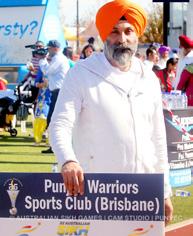






VOLLEYBALL




extravaganza organised by the Australian Council (ANSSACC), in Melbourne, 19-21 April
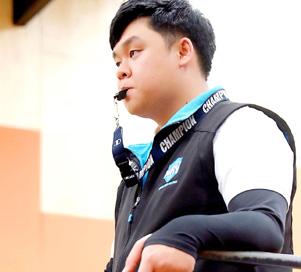

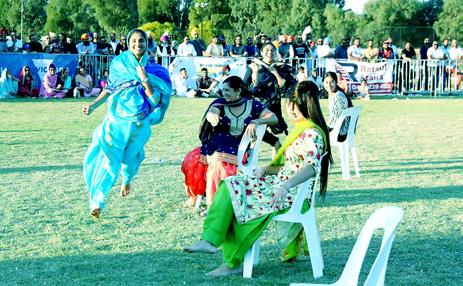



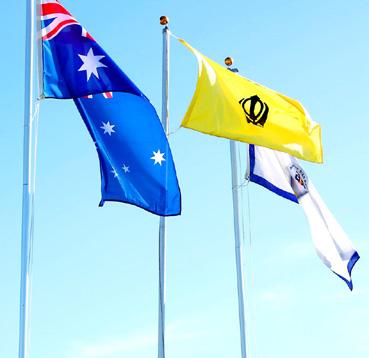


If you know you can’t vote on Saturday 18 May, you can vote early.
It’s amazing how powerful a piece of paper can be on election day.
If you are an Australian citizen aged 18 years or over, you are required by law to vote. So, if you’re unable to make it to a polling place on election day, you can vote early at an early voting centre or apply for a postal vote.





You can vote early if you are at work on Saturday 18 May, or will be outside the electorate where you are enrolled. There are other reasons you can vote early – visit www.aec.gov.au/early to find out more.


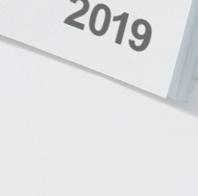






Your vote will help shape Australia.




















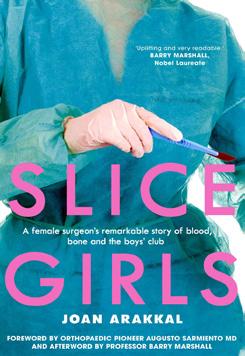
If you thought the medical profession is one where prejudices take the far back seat, you’re probably just as surprised as us at the reports of sexism and bullying that have emerged in recent years. Here’s another close look at this scourge, by an Australiabased Indian specialist, no less. Dr Joan Arakkal, a rare woman in a specialisation dominated by men – orthopaedic surgery – presented her book Slice Girls this year. A reflection on the sexism in the surgical community, it finds that women are ready for surgery, but asks, is surgery ready for women?
If you’re like us, fed up with much of the loud banter in politics, then ‘The Pragati Podcast’ is perfect for you. We love this Indian podcast, which is a weekly talk show on public policy, economics and international relations hosted by science/politics aficionado Pavan Srinath. He interacts with scholars and experts on topics like science journalism in India, whether China is really taking over the world (hint: it’s not), and why belts and roads are suddenly important. One of our favourite episodes was titled “Why do we elect criminals?” New episodes on Thursdays.

An Indian cuisine inspired burger joint! The brainchild of young couple Payal Bisht and Prasuk Jain, Burger Shurger is all about putting a twist on classic pub food like burgers, fries and the like, with familiar Indian flavours. Don’t expect any classics; it’s all about fusion here. Some of the crowd favourites include The Bun Pakora (the traditional bread pakora goes gourmet), Pataka Ribs (fingerlickin’ good), Butter Chicken Poutine (fries drenched with the most delicious butter chicken), burgers like Keema Pav and Mr. 65. Finish off with masala chai Crème Brulee. Simply delicious.

When The New York Times raves about a show, you know it must be pretty darn good! Made in Heaven, the new series on Amazon India Prime, has had us hooked the past couple of weeks. Co-created and co-directed by Zoya Akhtar and co-produced by Farhan Akhtar, the series is a fascinating look at a fast-changing Indian society through the eyes of protagonists Tara and Karan, who are Delhi-based wedding planners. Rich in production values and diversity, this is an important (and super-fun!) show for our times. Give this a go, you’ll love it.

NAGAR KIRTAN
Melbourne’s Sikh community, in all its colourful glory, took part in a celebratory procession to mark the spring festival of Vaisakhi recently. Hundreds of Sikhs, of all ages, flooded the inner city streets reciting religious slogans and passages from the holy (Sri Guru Granth Sahib) scriptures.
The massive procession commenced on foot from the Victorian Parliament House and travelled, peacefully, towards Flagstaff gardens. Hundreds of volunteers manoeuvred the crowds to ensure that they remained on the main road and within the confines of a rope stretched along the sides.
The special event, known as nagarkirtan was organised by the Victorian Sikh Gurudwaras Council (VSGC). The procession was led by saffron robed Panjpyare (the five beloved) carrying the nishan sahib (Sikh flag) followed by a palki (palanquin) of the holy Granth inside an open vehicle.


Vaisakhi is usually celebrated on April 13 or 14 every year and marks the Sikh New Year and the harvest season. It also commemorates the formation of Khalsapanth of warriors under Guru Gobind Singh, the tenth Sikh Guru, in 1699.

Sharing the values of Sikhism – equality, selflessness and seva– there were major arrangements made at Flagstaff gardens, to offer free langar (food) to the community and the participants. Water bottles, fruit, tea and traditional food items were generously distributed to everyone. The event was open to all communities.
As the procession headed in full force towards its culmination point, spectators witnessed the vibrant colours of traditional Punjabi outfits and enjoyed the soulful music sung by the participants. Cameras were whisked out by everyone to capture the unique visual, especially by the construction workers who were in the process of completing road works in the city.
Local Sikh organisations, community members and Punjabi language school kids were among those that proudly marched down the streets. According to Gurudwara
officials, the event attracted several thousand people this year and they intend to make this an annual celebration in the future.
Premier Daniel Andrews, who supported and encouraged the celebrations, communicated his wishes to the community
through a video message released earlier on social media.
Tight security was maintained throughout the walk by a strong contingent from the Victorian Police.
According to Neil Angus, Shadow Minister for Citizenship and Multicultural
Affairs, the crowd was even better than he expected. He expressed his admiration for the generosity of the community that was clearly visible as volunteers distributed copious amounts of food and drinks to everyone. Other political party members present also expressed their delight at the vibrant colours and the strong family and community feel of the event.
Antarpreet Singh Arneja from the Blackburn Gurudwara Committee said the intent behind this unique event was not just to mark a traditional Sikh festival but also to promote universal brotherhood and multiculturalism.
Preeti JabbalThe Premier of Victoria donned a navy blue turban to celebrate Vaisakhi this year alongside thousands of Sikhs and people of other faiths. Joining him at Federation Square in the heart of Melbourne city recently, were a large group of his parliamentary colleagues, all out to wish the city’s Sikh community as they marked the birth of Khalsa.
The event became a celebration of Sikh culture, including kirtan (spiritual music) and langar (food), turban tying, traditional martial arts, folk music, and display and sale of handicrafts such as beautiful jootis (shoes).

$550,000 for a Sikh Gurudwara, Pakenham
$500,000 for new Multicultural Centre, Berwick
$535,915 for a Sikh Gurudwara, Officer
$10 M for Bunjil Place, Narre Warren
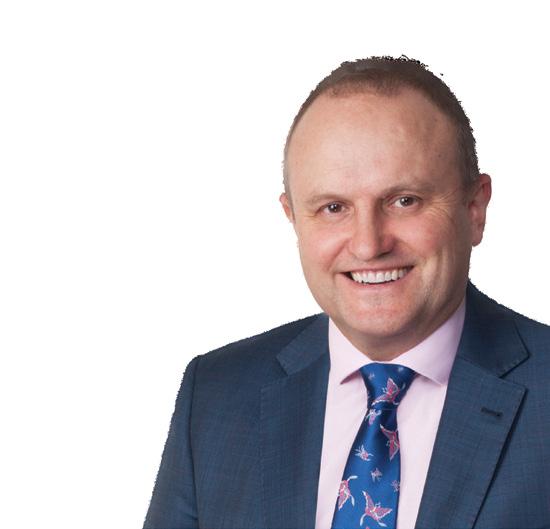
$120,000 for International Australian Sikh Games
$350,000 for Multicultural Hub design,Pakenham M
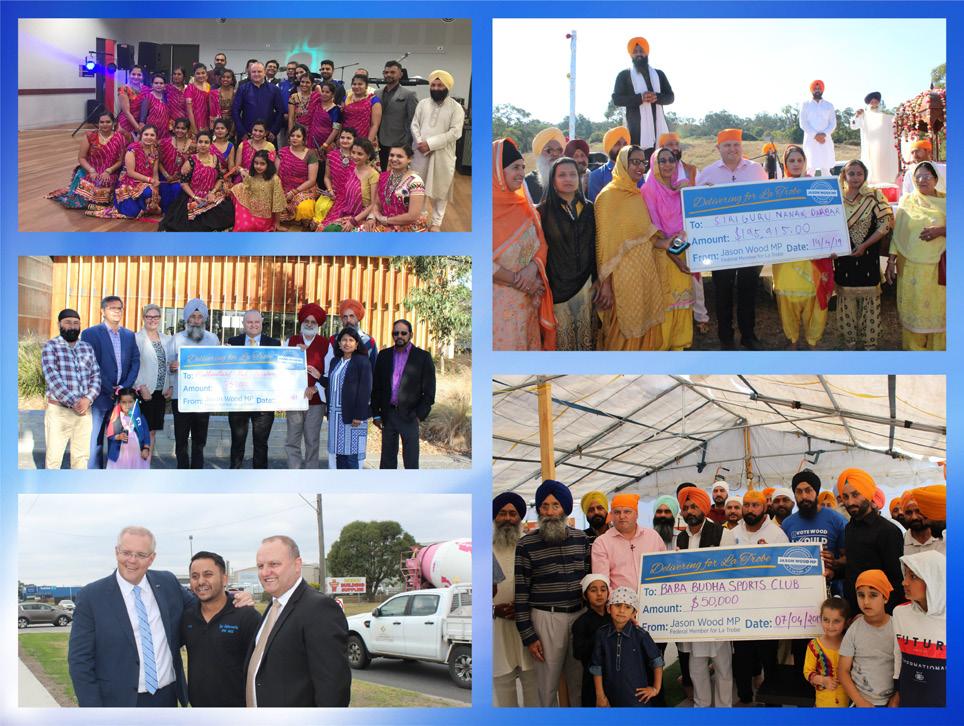
Museum with a unique presentation of song, dance and dialogue for the Prevention of Violence Against Women, drawing on Indian cultural themes of the goddess Shakti.
Not many children are passionate about violins when they are 12 years old, but Dean Coelho, a Year 7 student of Eltham High School in Melbourne, is no ordinary fiddler.

Not only does he play jazz at orchestras, gigs and workshops, he is also a versatile musician and plays the piano and drums as well.
He plays first violin in the senior strings orchestra and plays the drums in his school bands.
Also remarkable is the fact that Dean plays traditional jazz at the Victorian under-25 jazz as well as the Victorian over-25 jazz workshops.
He played at the 73rd Australian Jazz Convention in Ballarat last December, the Victorian Jazz Club’s 50th Anniversary event and at various small gigs around Melbourne.
Dean showed keen interest in playing the violin at the age of 4 and started lessons from Year 2 in primary school.
What draws him to the violin?
“I was attracted to the instrument when I heard family members play the violin when I was a toddler,” Dean revealed. “My uncle Daryl Coelho and cousin Gabriel De Figueiredo have been a source of inspiration to me.”
He added, “I have also been inspired by the great Stephane Grappelli and the Australian jazz violinist Julian Ferraretto.”
Dean practices, on average, for about an hour a day and among the numerous pieces that he plays with ease, has two favourites - Blue Bossa and The Bach Gavotte.
Has the young fiddler tried his skills with Goan music – the sound of his roots?
Of course, Dean replied with a smile.
“Ever since I watched the movie Nachom-ia Kumpasar, I began playing songs from Goa and have played at many Goan events organised by the Goan Overseas Association of Victoria in Melbourne.”
Frankey Gerard FernandesIt takes cultural understanding, contextual understanding, communication and collaboration to support a community, and IndianCare Inc is aiming to provide that with the recent launch of their Information and Support (I&S) Service. It is a free service to help people of Indian origin facing family or personal issues or needing support with life in Australia.
IndianCare was created in 2014 to cater to the welfare and development of the burgeoning population of people of Indian origin. Covering areas like alcohol and drug related issues, family violence, student support, housing, employment services, visa settlement etc., their aim is to seek better outcomes for people of Indian origin in welfare and community development areas.
The launch of the I&S Service was part of the ‘Voices of Shakti with That Girl’ – a collaboration between artists Mandie Singh and Dr Priya Srinivasan. The well-attended event was held at the Immigration


According to a recent release, family violence takes up an enormous amount of police time, with officers attending a family violence incident every seven minutes across Victoria. Recently, Lisa Neville (the Minister for Police and Emergency Services) joined Rick Nugent (Deputy Commissioner) to announce an allocation of another 709 officers, which includes 207 family violence officers for 2019.
A Centre for Learning for Family Violence, an $11.5 million purpose-built training facility has opened to ensure more police officers will be better trained to respond to family violence. The issue of family violence in the Indian community is a complex problem with cultural factors, social stigma and under-reporting being some of the barriers to access services.
An alarming increase in family violence within the community requires building capacity to engage and respond with culturally sensitive practices, understanding of gender roles and traditions and collaboration with community, health, police, and legal and welfare sectors.
According to IndianCare, their current focus is on two main projects – prevention of family violence and alcohol and drug education. This launch, funded by the Victorian Government, is a crucial addition to the work of IndianCare. “With the number of Indian-born residents tripling over the past 20 years in Melbourne, this service is needed more than ever,” said IndianCare President Jaya Manchikanti.
IndianCare claims to have good links with a number of organisations including Good Shepherd, Australian Multicultural Community Services, Southern Migrant and Refugee Centre, Alcohol and Drug Foundation, Community Information Services Victoria, Victoria University and LaTrobe University.
At this point what the community really needs is an organisation that goes beyond conversation and walks the talk. Here’s hoping that this not-for-profit organisation will do the needful.
Preeti Jabbal

 BY GAURAV MASAND
BY GAURAV MASAND
The atmosphere is electrifying. You can feel the pride and energy in the air – in young families and tourists included. People of all age groups are gathered at the sides. They are here to pay respect to martyrs and to show their solidarity to kith and kin. This is the iconic Anzac Day parade.
The parade starts from the corner of Swanston St and Flinders St down to St Kilda Road, to the Shrine of Remembrance. All along the parade there are members of the public who are cheering and clapping as the veterans march along.
This year Indian armed forces veterans participated in the parade for the eighth year. Next of kin of veterans also marched along
with armed forces veterans of all countries.
The Indian contingent is made up of more than 35 veterans from various units of the Indian armed forces, commanded by Maj Gen Ranjit Nadkarni VSM. Speaking to Indian Link Radio’s Priyanka Tater as he prepares for the march, Maj Gen Nadkarni explains to the listeners the importance of ANZAC in the Indian context and the details about the supreme sacrifice by the soldiers from India at the ill-fated military campaign in 1915.
His words bring much gravitas to the special broadcast on Anzac Day.
25 April marks the anniversary of the first major military action by Australian and New Zealand forces during World War I. They fought as a part of the British Commonwealth in Gallipoli against the Turkish forces.
The first Anzac Day parade was held on 25 April 1916. Today, a dawn service ceremony marks the start of the day in all major cities around Australia. The timing of the dawn service is based on the time that the ANZAC forces began landing on the Gallipoli peninsula.
Indian troops also participated in the war as a part of the Commonwealth forces, as India was a British colony at that time. Hence, this remembrance is equally significant to India’s military history. Around 15000 Indian troops fought in the war, most of them Sikhs and Gurkhas. The Indian contingent at Gallipoli comprised the 7th Indian Mountain Artillery Brigade, 29th Indian Infantry Brigade, Indian Supply and Transport Corps, and the 108th Indian Field Ambulance, among others. They served there from late April 1915 until the final evacuation in December. Most of them were good friends with Aussie troops. They faced a lot of casualties as they suffered heavy firing. It is said around 1500 of our people died and 3500 were wounded. Unfortunately, today they are forgotten soldiers.
And this is where the significance of Anzac Day commemorations lies – to remember our fallen.
This is my seventh Anzac Day parade, spectator Arnit Roychowdhury says from the

sidelines on Indian Link Radio. “I come to support my dad, who has been marching in Melbourne’s parade for some years now.”
His dad, (Ret’d) Col Samir Shankar Roychowdhury, has been instrumental in getting the Melbourne Indian contingent organised, and leads the group each year.
Ret’d Maj Gen Ranjit Nadkarni, who commands this year’s parade, tells Priyanka Tater, “This is our tribute to the people who served the nation, often giving the ultimate sacrifice: we march in their memory and to show our gratitude and pride.”
Meanwhile the chatty Arnit recounts fond memories of his own early life as an ‘Army kid’. “For our dads it was a strictly disciplined life and the discipline often distilled down to us kids. Of course we moved cities every few years, having to change schools and make new friends constantly… but it only made us more resilient. I’m sure many army kids will relate to what I’m saying, and to all those other aspects of army life such as the canteen and the mess and all of that!”
Both father and son reiterate that they would like other Melbournians of similar background to come out of the woods and join in the iconic parade.
“It is our duty to acknowledge the sacrifices of Armed forces personnel and their families,” Col. Samir Roychowdhury says.
After the completion of the Anzac Day parade, the participants attend a lunch that has traditionally been hosted for them by the Indian Consulate, in their own tribute to the Indian armed forces veterans.
This remembrance is equally significant to India’s military history
ensure sustainability and proper use of the facilities and relentlessly pursues his dream of helping a million kids around the world.
BY PREETI JABBAL
Atoilet adventure of epic proportions changed his world. Now he wishes to share his story with everyone. With his latest book Toilet Warrior, Melbourne’s Mark Balla talks about his investment in the ‘toilet economy’ that trades dollars for dignity and profit for purpose.

From Ted Talks to scripting books, Mark Balla’s inspirational journey is fuelled and articulated with passion.
Defecation and sanitation are not topics on top of most people’s minds, but Mark compels you to think why they should be on your charity radar.
After helping over 30,000 kids get better access to sanitation, Mark has made toilets his business – albeit one where the returns are more meaningful than monetary.
As a previous Lonely Planet Survival Guide writer, Mark knows how to put pen and thoughts to paper, and he covers plenty in the eleven chapters of his book.

His narrative, woven around the issue of toilet-less schools in Indian villages, is compelling and adds an immediacy to the issue rampant in rural India – an issue that we can’t imagine in our lives of western comfort.
From a chance encounter with two university students from Dharavi –Mumbai’s largest slum – to meeting Bollywood actress and sanitation ambassador Vidya Balan, Mark takes you deep inside his ‘toilet journey’.
He shares his laughter and a lot of tears as he narrates his multi-sensory experiences in India that captivated him so much that he sold his business and found another calling.
At times he deviates to other subjects like seat-belt safety and cleft lip surgery and other causes dear to him. But at its heart, this is the story of toilets, or the lack of them.

He despairs at the school children forced to defecate in the open and is devastated about girls not attending school during menstruation due to lack of proper facilities.
He rejoices when his efforts deliver results in the form of multiple toilets built with the support of locals, school staff and Rotary clubs.
He revisits the schools and people to

You may be tempted to skim over some of the pages towards the second half, but overall it’s a well-intentioned, wellconstructed book where the main demand the writer makes on us is to have empathy for the school children bereft of the most basic of facilities and the need to act on it for improved welfare, sanitation and hygiene.
The book cover grabs your attention with a mehndi adorned hand displaying the classic finger gesture for toilet and the book is illustrated with several black and white images of people, places and of course poop houses. The subject is squeamish but the content and intent are strong-stomached.
According to Mark, human suffering, especially suffering of children, should be unacceptable to all of us. It is only through passion and compassion that we can hope to make the world a better place for those in the greatest need. Part of the proceeds from the book will directly contribute to projects that will change the lives of many.
After helping over 30,000 kids get better access to sanitation, Mark has made toilets his business – albeit one where the returns are more meaningful than monetary.
All it took to give dignified life back to a young woman, was a threehour surgery.
“She faced lifelong ostracism from family and society because of her physical conditions,” recounts Dr Ray Hodgson, a specialist gynaecology surgeon, describing his career’s most emotionallystirring medical case.
That was in Nepal, some two years ago. Hodgson has been working on improving the maternal health of women there since almost a decade. He is now drawing attention to the deplorable health conditions there, especially in the remote areas, in the form of a book, aptly called Heartbreak in the Himalayas

Fuelled by his life-long passion for global improvement of women's health, Hodgson has been focusing his attention on the cause of maternity health of women in rural Nepal, which is probably among the poorest regions in the world.
Since 2010, he has been travelling to Nepal every few months with teams of volunteers to tackle the extremely high levels of maternal and perinatal mortality in the tiny Himalayan country.
He has also founded Australians for Women’s Health (A4WH) with the same objective. The organisation is now raising funds (target $500,000) to build a state-ofthe-art 35-bed mother and baby hospital there.
According to international statistics, a mother dies every four hours and a baby dies every 20 minutes in the country, often due to preventable causes and lack of adequate health facilities. Many of the women who survive often end up forced to live life-long with problems like urinary incontinence, dragging pain, infection and great difficulty when undertaking even simple tasks like sitting or walking.
Prior to his continuing commitment to Nepal, Hodgson also spent a few years in southern India volunteering his medical services through Equal Health in the early 2000s.
His book details the challenges that he and the volunteers have faced over the years, including working out of dilapidated buildings with very limited supplies, working in tents under flashlights with team members giving their own blood in order to save their dying patients, as well as managing the cultural challenges in what is a highly patriarchal country.
Describing the book, Hodgson says, “You can’t help being moved by the heartbreaking stories of these women. We wouldn’t stand for this in our country and we shouldn’t stand for this in any country. But most people are blind to the appalling conditions these women and babies suffer. I want this book to open people’s eyes, and to realise how very lucky we are in Australia. And I want people to realise that every single one of us can help
these desperate people.”
Currently based in the mid north coast of NSW, Dr Ray Hodgson graduated from Sydney University in 1981 and took his surgical training in Sydney and London. Among the other feathers in his cap, he is currently also an Associate Professor at University of NSW where he is actively

The true story that inspired Dr Hodgson to move mountains in Nepal 22-year old Jumari lives in rural Nepal. She suffered severe genital prolapse after her only pregnancy three years ago, but sadly lost the child during a traumatic three-day labour at home. The genital prolapse began shortly after that. It had progressed to a painful lump between her legs, and as a result, she also suffered from continuous urinary incontinence. Her
involved in education of medical students, registrars and consultant surgeons.

His book was officially launched in Sydney, Melbourne and Port Macquarie last month and profits from its sale are going towards the hospital's construction in east Nepal on the site of Gaurishankar Hospital. It will have modern labour wards, an operation theatre, OPD as well as teaching facilities for local doctors, nurses and mid-wives.
The encouragement for the book from his fraternity has boosted the morale of the doctor, and he is sure it will be appreciated by the general readers as well. "We are currently on the second print run of the book. The readers say it is hard-to-put down, but they are forced to, as it frequently brings tears in their eyes. The book will be available on Amazon International so everybody can buy a copy," he says.
Dr Hodgson fondly describes Indians and Nepalese, who he says share close ties.
clothes smelt of stale urine, she could perform very limited physical work on their farm, and her husband had thrown her out of home as intercourse was impossible. Due to the shame of being cast out by her husband, and her continued urine loss, Jumari was shunned from most people in her society, including her parents. She somehow reached Dr Hodgson's team and they performed corrective surgery to end her physical pain.
"They are truly gentle, serene and caring communities with big brown eyes full of magic and wonder," he says.
He is trying to involve more Indians to help the Nepali women and improve the facilities for maternal health. "The Indians do have an affection for the people across their border," he says.
Uterine prolapse is a debilitating condition that plagues 10% of Nepal’s 13 million women. Symptoms include urinary incontinence, dragging pain, infection and great difficulty when undertaking simple tasks like sitting or walking.
The root cause is poor diet and heavy workloads for women. This stems from deep-seated culture of gender discrimination from early childhood, early marriages and pregnancies and limited access to health services.
“We wouldn’t stand for this in our country and we shouldn’t stand for this in any country”
Dr Ray Hodgson

Apulao is often considered to be second grade in comparison to a biryani. The general attitude is that you make a pulao when you don’t want to indulge in the extravagance of a biryani. This could not be further from the truth: here’s an Awadhi style pulao to prove this.

Awadhi cuisine from the Lucknow region is not just famous but one that’s held in reverence. The food that came out of the Awadh kitchens had a royal elegance, and continues to this day to be held in esteem for its techniques, attention to ingredients and complexity of flavours.
The cuisine is known for its ‘nafaasat’ i.e. refinement. Spices are used brilliantly to draw out the flavour of the main ingredientbe it rice, meat, fish or vegetables - and slow cooking is the preferred method to create that final harmonious medley that makes it all so refined.
Culinary literature is important when it comes to regional cuisines like this and one of my favourite cookbooks on this subject is Dastarkhwan-e-Awadh. The authors Dr Sangeeta Bhatnagar and R.K. Saxena, both culinary historians, spoke to Nawabs, chefs and cooks of the erstwhile royal households, as part of their research.
Coming to today’s dish, let it be stated at the very outset that making a good pulao requires as much skill as a biryani. The

INGREDIENTS:
n 500gms aged basmati (long grained) rice; washed and soaked for at least 1 hour
n 500gms lamb (or mutton) mince
n 1 inch piece ginger
n 5 medium garlic cloves
n 1 tsp red chilli powder
n 10gms roasted gram flour
n 1 inch cinnamon stick
n 3 whole green cardamom
n Salt, to season
n Ghee (clarified butter)
n 5 medium red onions
n 1 ½ tbsp rose water
n 1 pinch saffron
n 250 ml milk
flavours are much less complex in a pulao: there are far fewer spices and aromatics and it is a subtle play of those few spices that make a pulao so delicious. It all starts with cooking the rice perfectly. Use aged long grain rice which must be fragrant and aromatic, and cook it so that each grain is separate from the other yet done perfectly.
A kofta pulao is, literally, meatballs and rice. The meatballs are shaped small in this recipe, unlike the larger ones that we are accustomed to eating in pasta or as snacks. Though mutton would be used traditionally, I have used lamb mince here, which is flavoured with just cinnamon and cardamom.
Another important ingredient is ghee
DIRECTIONS:
n Grind the cinnamon and cardamom to a fine powder.
n Grind the garlic and ginger to a paste (add a few drops of water if necessary)
n Also grind 2 onions to a coarse paste and keep aside.
n Finely slice the remaining 3 onions; fry in ghee till golden brown, drain and keep aside.
n Into the mince, add half of the cinnamon-cardamom powder, roasted gram flour, 1 tbsp ghee and salt to season. Knead well to ensure that all the ingredients are mixed well and the mince has a fine consistency.
n Take small portions of the mince and roll into small balls (slightly larger than marbles). You will roughly get about 30 - 35 balls. Heat ghee in a pan and fry the meatballs; keep aside. (Take care not to overcook or the meatballs taste dry)
n To cook the rice, heat 1 ½ litres

or clarified butter. In traditional Awadhi cooking, tempered ghee is used but here I stick to plain ghee to keep things simple. Oil can be used but would hardly provide any flavour, and ghee is way healthier anyway. The rice and koftas are cooked separately and then layered; the cooking process is then finished using the dum technique. For those who aren’t aware, this is where all the ingredients are placed inside one pot and the edges sealed using dough. Slow charcoal heat is applied on top and bottom, and the food is allowed to slow cook with minimal heat.
water. Season with salt and add the remaining cardamom-cinnamon powder. Add the washed rice and parboil; drain and keep aside.
n In the same pan that the onions were fried (add more ghee only if necessary), add the onion and ginger garlic paste. Sauté on medium heat till the rawness disappears. Then add chilli powder and sauté till the ghee separates.
n Add the fried meatballs to this and add 1 cup (250 ml) water. Cook till most of the water has disappeared. Taste and season with salt if necessary.
n Meanwhile soak saffron in warm milk.
n To finally assemble the dish, place a large deep bottom vessel on low heat and add half of the cooked rice. Then layer with the cooked koftas/ meatballs, add half of the rose water and saffron milk. Then add the remaining rice followed by the
Now most of us would use a modern dum technique in our homes. You could either place all the ingredients in a casserole dish, seal using a foil and finish cooking at low heat in the oven. Or you could follow my technique: since I don’t like to use foil, I cover with a tea towel and then place the lid on top so that it’s really tight and no steam escapes. The pot is then placed on a flat tawa or directly on heat but at its lowest setting. Ensure that the edges of the towel hanging out aer scrunched up; we don’t want to start a fire!
remaining rose water and saffron milk.
n Seal the edges (read description above for dum techniques) of the vessel and cook covered on low heat for about 20 minutes.
n Open just before serving and garnish with fried onions.
n Serve with a raita.
Minal Khona has been reading tarot cards for the last two decades. She uses her intuition and connect with the cards mostly to help people.


March 21 - April 19
Blocks, recuperation, money from more than one source and emotional highs and lows span this month for Arians. Any delays are destined, and will lead to future success. If your relationship seems like it is at a standstill, let it go for a while, till things change. An unscheduled trip is good as it could bring you luck. Blocks on the career front are temporary and soon you will have more work than you can handle. Break free from past obsessions.
LEO
July 21 - Aug 22
An unexpected reunion with an ex or an old friend is on the cards. Plans at work face hurdles and you will have to dedicate time to sort them out. That’s because you are taking on more than you can handle. Take adequate rest to avoid health problems. An unexpected financial gain is anticipated. Your good judgement and ability to solve problems lead to your success. A friend, or lover or a new acquaintance will be beneficial to your career.
SAGITTARIUS
Nov 22 - Dec 21
April 20 - May 20
A major Arcana indicates an important event or shift. This month is about spiritual quests, keeping up appearances, a happy announcement in the family etc. You will want to improve your home or health, but your work will keep you busy and away from home. Feeling tired and run down, a new wardrobe might pep you up. Do not merge business with friendship. Good news regarding money is foretold. Keep an open mind to everything and be patient till everything is resolved.
VIRGO Aug 23 - Sep 22




Activity in the mental realms and money matters, starting your own business, or even a break to calm your mind is on the anvil. An unfair situation needs delicate handling, so think before you speak. Things could be tense at work. Health needs medical attention; a dispute over money delays matters, but they will get resolved. Pray for what is rightfully yours and it will come to you. People around you will be supportive and a new love is on its way to you.
CAPRICORN

Dec 22 - Jan 19
GEMINI May 21 - June 20


A good month for Geminis as the card representing the sign shows up. You are in expansion mode, at work and in your personal life. Things are at a standstill in your love life, but you can expect validation from influential people. Travel for work, not pleasure, is predicted. Your health improves if you have been unwell, as will your financial situation. Meeting the right people could benefit your career prospects, and chances are you will. Be patient and diligent in your efforts.
LIBRA

Sep 23 - Oct 22
An element of surprise, partial success and a possibility of a reunion are on the cards this month for Librans. Money comes in, earlier than expected. In your love life, you will want to analyse the quality if you are single. A lawsuit could get settled in your favour. At work, beware of someone trying to tap into your insecurities to make you feel that your job is in jeopardy. One cycle is going to end and a tense situation will become easier.

Jan 20 - Feb 18
Life altering events related to your family, work, love life or friends could take place which leave you feeling powerless. It’s time to take the rose-tinted glasses off in a troubling situation. Anxiety attacks could mar your health this month, so take enough rest. Don’t let appearances or what others say, take you away from your goal. What you want is under your nose, you only have to look for it. An attitude of gratitude makes things better.
A tough month for some of you, as you could face conflicts and unforeseen problems. A trip won’t be as pleasant as you’d hoped. Things at work are not going to be all smooth sailing. Lower your expectations of others or you will be very disappointed. A recurring illness continues to irritate and it might just be here to stay. Money is stable but it won’t stop you from worrying. You will succeed in some ways and in some cases, maybe not.
You want to streamline your finances for future security, and a new business showing profit will be a pleasant surprise. Professional advancements bring joy and you will plenty to get by. A health condition continues to trouble you and a visit to the doctor could be painful. Be careful about losing money through your own carelessness. You could begin a new venture with someone you like very much. Luck is on your side but stay detached in matters of the heart.
June 21 - July 20
You are in a thoughtful mood, thinking about your life and hopes. An unexpected financial opportunity will come your way. Existing situations cause anxiety and you need to get some rest. Unsettled conditions will resolve themselves; emotional problems come to an end. If in a relationship, you won’t be able to commit. An attractive job offer could come your way. A greater hand is steering your destiny. You will understand why you had the experience you had. Let go.

Oct 23 - Nov 21
The usually intense Scorpios could find themselves being practical like Capricornians. Work, scholastic endeavours and practical idealism are your foundations for the month. Your self-esteem remains high, even in a relationship going nowhere. An unexpected piece of good news is indicated, as is a trip for educational purposes. Work puts you in a despondent mode but someone cheers you up. Money will be slow coming in but that will change soon. Be open to listening to new ideas and working on them.

Feb 19 - March 20
You might meet a Sagittarian who changes the way you think or feel about a situation. Or, you might find yourself being outspoken, like one. Matters related to philosophy, spiritualism and work occupy you this month. A new approach to work could turn into a lucrative and promising project. The usually perfectionist Pisceans might get a little lackadaisical about emotional matters. An existing health condition needs attention. Change is in the air but not at the cost of your self-esteem.



DIRECTOR: Gauravv K. Chawla
STARRING: Saif Ali Khan, Rohan Mehra, Radhika Apte, Chitrangda Singh
I can’t recall a single notable (or even non-notable) Indian film based on the plunging dips and giddying highs of the stock market. Do you remember Harshad Mehta? How could you forget the podgy stockbroker who made thousands of Indians rich overnight and then it all ended in a financial mess in no time at all?
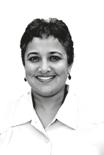
Saif Ali Khan’s Shakun Kothari’s destiny run on the same lines. Except that Saif as the wily ruthless
Machiavellian stockbroker is everything that Harshad Mehta would have wanted to be. This is Saif’s most gloriously written and performed part, meaty witty and wicked. He chews into it exposing a sacred hunger that I didn’t notice in his last over-hyped outing.

Saif as Shakun is a true-blue Gujju who won’t let neo-affluence corrupt his cultural integrity. He slips into Gujjufications with the unrehearsed cuteness of tycoon, who has long ceased to be cute to everyone, including his own wife and children.
When debutant Rohan Mehra enters the plot as Rizwan there is no Shakun Kothari around. We know Rizwan idolizes Shakun and wants to be like
A flourishing society also requires more than just freedom of speech; it requires security, stability, a just legal system and a vibrant economy.
the mentor and the protegee together. Saif and the very fine and confident debutant Rohan Mehra just don’t have enough scenes together. In fact Rohan builds a better bond with Saif’s screenwife Chitrangda Singh in just one scene where the teary-eyed protegee tells his mentor’s wife that sometimes you just need to give the one you love a tight slap. The written word seldom gets to be conveyed with such unvarnished directness in commercial Hindi cinema where everyone either talks florid or over-casual.
A flourishing society requires more than just freedom of speech; it requires security, stability, a just legal system and a vibrant economy
However, the treatment of the Aboriginal peoples in this country stands as a chilling reminder that tolerance has not always been embraced. The Cronulla riots similarly reminds us how quickly what we have achieved can be put at risk.
The proposed amendments to Racial Discrimination Act were put forward on the basis that the current wording of Section 18C inappropriately constrains our freedom of speech.
him - a very dangerous ambition to have. And who knows this better than Rizwan’s wife Chitrangda Singh, who in a role severely conscripted by the plot’s bristling sinewiness, manages to find her redemptive moment in the grand finale.
There is no redemption for Shakun. He is showman a ball of fire hurling down an abyss, and enjoying every moment of it. The film takes great pride in being clued into the inside workings of the stock market. Yet it never lets the tone of know-all self-congratulation come in the way of telling us the story of ‘When Shakun Met Rohan’.
Your character in the film is understandably obsessed with IKEA. If we happen to run into you at an IKEA store, which level would you most likely be on?
That section makes it unlawful to do an act in public which “is reasonably likely… to offend, insult, humiliate or intimidate another person or a group of people” if “the act is done because of the race, colour or national or ethnic origin of the other person”.
My quibble with the rivetting script (Nikhil Advani, Parvez Sheikh, Aseem Arora) is that it takes its time in bringing
Whichever section my wife likes! I love setting up our den where my sons and I watch sports, so we might be at the level that has the loungers.
There is no doubt that freedom of speech is important but it is important because of the role it plays in our democracy. Freedom of speech ensures that when you or I go to the ballot box we can make an informed decision about who to vote for.
That is why freedom of speech is not absolute. In this country, it is criminal to disclose secrets which risk the lives of Australian soldiers. It is likewise a crime for a corporate executive to disclose market sensitive information to his mates. The law protects us from slander and protects privileged comments made to our lawyers.
There’s a character in the movie, a 27-year-old, exploring her sexual identity and whether or not she’s a lesbian. India decriminalised Section 377 only recently, with homosexuality getting legal approval and recognition. According to you, how have audience reactions to gay characters on screen changed over the years?

In Baazaar the emotions are tightly reined-in as caustic vitriolic conversations are let loose with not a care about who’s eavesdropping.
The reaction to the decriminalisation of article 377 in India was amazing. The entire business community supported the Supreme Court judgement, and most online and retail businesses had some form of celebration. As far as entertainment goes, with platforms like Netflix screening in India, gay characters are not at all unfamiliar to Indian audiences. There have been a number of important LGBT characters in Indian films and TV shows, and more and more people are expressing themselves freely. I think it’s great!
As a society, we recognise that these restrictions do not hurt our democracy or way of life. Indeed, we understand that they are necessary to maintain it. And laws against hate speech are no less necessary, because racism and bigotry tear at the heart of our social fabric.
My favourite line, and the one that says it all about Shakun Kothari, is the one in the run-down Gujarati bhojanalaiya. “You think I come here because I love the food? No, the food is terrible! But it helps me never forget where I came from.”
The brilliance of the line is never forgotten in a morality tale that never pushes its righteousness into our face. In fact I suspect the very assured debutant director Gauravv K. Chawla actually enjoys his grey protagonist’s amorality.
Saif’s blustering warmth keeps Shakun Kothari from falling apart even when the stakes are heavily weighed against him.
Your character in the movie comes back to India to work as a teacher. What profession would you have chosen, if you hadn’t been an actor?
Racism and bigotry leave people feeling exiled in their own home. They do not improve the quality of public debate nor do they assist the wise completion of a ballot paper. They are insidious because they attack a person because of their identity; their heritage. They imply that a person is inferior because of who they are. They are hurtful, divisive and can lead to individuals and entire communities feeling unwanted, unvalued and second-class.
I always wanted to be a chef! I think I would have been very successful at that.

How would your character Aja rate this interview out of 10?
While some of the other supporting performances just don’t match upthe ever-brilliant Manish Choudhary struggles in an underwritten role; Radhika Apte as Rizwan’s go-getting colleague makes space for herself. In a way she tokenizes the film’s morality. In today’s times you have to push your way into attention.

As a society, we recognise that restrictions on free speech do not hurt our democracy or way of life. Indeed, we understand they are necessary to maintain it. And laws against hate speech are no less necessary, because racism and bigotry tear at the heart of our social fabric
This is a truly unique interview! I have really never given answers to questions like these, so for originality I’m sure Aja would give this interview a 10/10.
Subhash K. JhaComments today can also revive memories of past wrongs. Unfortunately, few ethnic groups have been spared the pain of racially justified persecution. Examples such as slavery in the United States and the Holocaust are well known. In recent times, the world has seen genocides in Rwanda and Bosnia, while today in North Korea persecution is justified by racial supremacy.
You are a soul of a permanent unchangeable nature, and if you would live as a soul, you would never be affected or changed by outer changes.
-Sant Baljit SinghFreedom of speech is necessary so that as a community, we can debate political ideas and so that individuals can have a say on decisions that affect them.
 Sant Baljit Singh
Sant Baljit Singh
Section 18C ensures that everyone has a role to play in that debate.
Nurture your spiritual life through meditation on the inner Light (Jyoti) and Sound (Naad) and realise your true self. All events are free. for further information

1800 462 193 www.knowthyself.org
Together, we have built a vibrant, rich and diverse society. A society not focused on the differences between us, but founded on the strengths our differences afford us. Section 18C stands, not as a threat to freedom of speech, but as a protector of the purposes which that freedom serves, and as a guard to an achievement exceptional in this time and rare in times before.
Matt
Kean is the Member for Hornsby and Parliamentary Secretary for Communities.


It’s important that you understand how to vote correctly.
On election day, you’ll receive two ballot papers:
• a green one for the House of Representatives



• a large white one for the Senate
On the green ballot paper you are voting for a representative of your local area or electorate in the House of Representatives.
On the white ballot paper you are voting for representatives of your state or territory in the Senate.
Don’t worry if you make a mistake. Just ask for another ballot paper and start again.
The show will no longer go on at the iconic 71-year-old RK Studios in Mumbai.
It will now make way for a swank residential complex-cum-shopping plaza through its new owner, realty major Godrej Properties Ltd.
GPL has purchased the 2.20 acres (roughly, 100,000 sq. feet) RK Studios premises in Chembur, north-east Mumbai - founded in 1948 - which were gutted in a major fire that engulfed it on September 16, 2017.

GPL, which has inked the deal for an undisclosed amount with the Bollywood's Kapoor clan - plan to now convert it into a modern residential apartments complex and a luxury retail centre spread over a saleable area of around 350,000 sq. feet.
Leading realty players though point out that the current commercial property rates in and around Chembur are in the range of Rs 24,000-Rs 28,000 per sq. feet depending on the locality.
Executive Chairman of GPL, Pirojsha Godrej, said the deal fits with the company's strategy of deepening its presence in key locations across India's leading cities.
"We will seek to ensure we celebrate the remarkable legacy of this site with the goal of delivering an outstanding lifestyle for its residents," Godrej said.
Veteran Bollywood actor Randhir Kapoor, son of the founder of RK Studios, the legendary Raj Kapoor, said,
"This property in Chembur, has been of tremendous significance to my family over the many decades that RK Studios has operated from there. We are excited to have chosen GPL to script a new chapter for this location and build upon its rich history."
According to sources, work on the designs for the mega-project will start shortly and after obtaining the necessary approvals, the construction of the housing-cum-shopping complex could begin by early 2020.
Incidentally, the studio property sale deal comes barely eight months after late Raj Kapoor's widow, Krishna, passed away at the age of 87, on 1 October 2018.
Soon after the blaze, which also reduced to ashes precious memorabilia and costumes from the RK Films and Studios banner films over the past seven decades, the Kapoor family had expressed their inability to revive it or continue maintaining it.

The RK Studios was the shooting venue for some classics of RK Films like Aag (1948), Barsaat (1949), Awaara (1951), Shree 420 (1955), Jaagte Raho (1956), Anari (1959), Sangam (1964), Mera Naam Joker (1970), Bobby (1973), Satyam Shivam Sundaram (1978) and many more.
Raj Kapoor passed away in June 1988 after which some of his incomplete films like Ram Teri Ganga Maili (1989) Henna (1991) were also made here.
Poor Akshay Kumar. His Canadian links have put a few chinks in his deshbhakt image this past week. He has faced flak for talking about patriotism despite not being an Indian citizen.
The trolls claimed he didn’t turn up to vote this election, despite that wellpublicised (but “non political”) interview with PM Narendra Modi. And oh, should his National Award for Best Actor (Rustom, 2016) be revoked?
As it turns out, it’s all good. The honorary Canadian citizenship came after he was brand ambassador for Canadian tourism in India in 2010.
But in these ultra-nationalist times, the ‘Canadian’ tag is sticking on days after the furore died down. Videos have been resurrected from a Toronto stage show years ago where the star claimed, “This is my home and this is where I will return after I retire from the movies.”
But you know, being a true blue Punjabi and all, we could surely have guessed there was a bit of “Can-ay-dda” in the dude…
Patriotism has been a favourite theme in many of Akshay’s films: Kesari, Baby, Holiday - A Soldier Is Never Off Duty and Airlift.

Poor Mumtaz. For the second time, she has had to wake up to news reports that she had, er, died.
This time round, her daughter Tanya Madhwani had to take to a video message on social media to say all is well.
"My mother is fine. She is in London... She is sending her love to you all."
But she wrote on Instagram, “So exhausting, another rumour of my
mother's death. She is healthy and looking beautiful as always and has asked me to let her fans know she is well! It's all rubbish.”
Reportedly the veteran actress was upset and irritated at the news (which apparently even well-regarded journo Komal Nahtatweeted about). But later as her family in London laughed about it all, she relaxed.
The actress, it is claimed, is enjoying retired life playing grandma to four little ones.
Hmm, wonder if she sings Bindiya chamkegi to keep them entertained?
Maybe she’s calling out Loafer to those spreading the rumours that she’s kicked the bucket… or Dushman, or maybe Mujhe Jeene Do!
Stop us, somebody…
Poor Rakul Preet. Even after critical acclaim, she says she hasn't made a name for herself in Bollywood, and still has a long way to go.
Rakul made her acting debut in 2009 with Kannada film Gilli. She ventured into Bollywood in 2014 with Yaariyan and was later seen in Aiyaary in 2018.
"I don't think I have yet made a name for myself in Bollywood. I don't think I have done anything. In fact, I always say that the fact that 'I am an actor' has not sunk in my head. I have been in this industry, in films for five to six years now," Rakulsadi recently, indulging in a bit of self-analysis.
She added, "Having done so many films even in the south, I mean I take my job seriously, but I don't take the fact that I am an actor seriously."
The 28-year-old will soon be seen in De De Pyaar De, due for release on 17
May. In this film she plays the Londonbased girlfriend of a man (Ajay Devgn), old enough to be her dad. All is well until he takes her to India to meet his familyhis parents, his kids, and his ex-wife, the gorgeous Tabu.
Tabu, did you say? This one goes on our must-see list, then…


AAMIR: FORREST
GUMP DESI STYLE
Poor Aamir Khan. He’s looking at yet another strict diet plan for his new movie role. This time round, he will be eating less, to lose some weight instead of putting it on like in Dangal
It’s all for Laal Singh Chaddha, which is the Hindi remake of Tom Hanks' 1994 classic Forrest Gump, to be released around Christmas in 2020.
The film, which is expected to go on the floors in October, is written by Atul Kulkarni and will be helmed by Secret Superstar director Advait Chandan.

Aamir had announced the project on his birthday in March. The actor, who tasted failure with his last film Thugs of Hindostan, said he would be losing around

20 kgs for his role in Laal Singh Chaddha. He also shared that he would be sporting a turban for some segments of the movie.
Forrest Gump, directed by Robert Zemeckis, is based on Winston Groom's 1986 novel of the same name. The film went on to win six Oscars, including Best Picture, Best Director and Best Actor for Hanks.
It was 106 years ago this month (3 May to be exact) that Dadasaheb Phalke's Raja Harishchandra released, marking the celebratory beginning of the Indian film industry.
With this film, India's first full-length feature, Phalkeset the pace for the silent era which went on till the 1930s when the talkies emerged, and became regarded as the father of Indian cinema.
Silent cinema may have become rare in today's time, but it hasn't kept the film world away from appreciating its beauty.
Kolkata-based filmmaker Aneek Chaudhuri, whose latest works include
two silent dramas on social issues - White and Cactus–is a fan.
Cactus will be a part of the film market at the Cannes Film Festival later this month.
Earlier this year, a slew of Indian silent films by Phalke, Baburao Painter, PV Rao, Kalipada Das, Shyam Sundar Agarwal, GP Pawar and Kanjibhai Rathod from the collection of the National Film Archive of India (NFAI), were screened in Paris.
Last year, southern filmmaker Karthik Subbaraj experimented with the silent medium with Mercury, a horror thriller movie starring Prabhudheva.
Amit Kumar's 2003 film The Bypass was a short silent film starring Nawazuddin Siddiqui and Irrfan Khan.

Film historian SMM Ausaja recounts the 1987 Kamal Haasan-starrer Pushpak, about an unemployed young man, as a prominent silent movie in recent history.
"Silent cinema is a universal medium which is not dependent on a language and can transcend to any country. In today's era of talkies, silent is niche. It has become an experimental genre," Ausaja told IANS.
Match the following stars to the tweets below:

Jacqueline Fernandez, Priyanka Chopra, Karan Johar, Akshay Kumar, SRK
Little one was a bit confused between ‘Boating’ and Voting, so took him along to experience the difference.
I have never hidden or denied that I hold a Canadian passport.
Two beautiful, talented, young stars making their debut in Hindi cinema. Each comes with their own unique story and each with a promising bright future! @ tarasutariaa@Official_Ananya
Always a Sucker for @TiffanyAndCo@BBMAs
Extremely sad at the news of bombings in Sri Lanka. It’s unfortunate that one is not able to see that violence is like a chain reaction.
DEAR AUNTYJI
To say I am livid is an understatement. My husband and I have been married for 17 years and sometimes, with the pressures of work and running a household, things can get stressy. But I try to be nice to my family: I cook them hot meals every day and look after their needs. Anyway, last week, I made aloo bhaigan. Because I always try to look for ways to improve, I asked my husband during dinner, Shamu, what can I do next time to make the aloo bhaigan tastier? And you know what the shaitaan said? He said, how about a dash of compassion and chamach full of kindness? Auntyji, I literally choked on my puri. What a nasty thing to say! I stopped talking to him immediately, and not one word has passed my lips since. Shamu has been trying to apologise, but I don't want to hear anything from him. My feelings are hurt and I want to punish him. My kids tell me that I should move on and not worry about this so much. How not to worry, Auntyji, unhone hamara dil jo tod diya. What to do, Auntyji, pleaseadvise?
Seeking a suitable match for a 33-yearold girl, 5’6”, Melbourne based CPA, working as a consultant. The boy should be well qualified, professionally settled in Australia, with a minimum height of 5’9”. Contact n.bhandari085@gmail.com or + 61433391881.
Seeking professionally qualified settled match for Sydney based, never married Aus citizen, Hindu, Punjabi Khatri, 45, 5'3" slim, fair, attractive girl. Girl is postgraduate and is working on a good position in government organisation. Please send details with photo to Indsyd2016@gmail.com
Seeking suitable professional boy born and brought up in Australia for young attractive girl, never married, 31, 5'2". Looks much younger, born and brought up in Sydney. Professional educator, Hindu Indian well settled family. Please email to rtmkh8064@gmail.com or call 0426 180 427.
Seeking professionally qualified match for attractive 28 year old, 5’ 3” Punjabi Hindu Saraswat Brahmin BAMS doctor girl. DOB: Apr 1990. Currently living and practising in Chandigarh. She is passionate about her work as an Ayurveda doctor and enjoys traditional Indian culture. Looking for well settled, educated, non-drinker and nonsmoker Punjabi Brahmin boy in Australia or India. Please send details with photo to yoginderkumar@gmail.com
OMG, you truly are the manifestation of Kaali if you were able to punish your husband by not speaking to him for over a week. See, normally I would say your husband is a badmaash, a zalim, but in this instance, based on your behaviour, I reckon you are the kalankani. So your husband made a flippant comment. Judging by your reaction, there must have been some truth to this, because anyone else would have laughed because it was funny. But clearly you have the bitterness of a karela with how you treat your husband. You like to punish him - and you are doing this now with your zaherila silent treatment. Arrenagin, sambhalja. Do you want your children's future spouses treating them the way you are treating your pati? You should do some reflection. Are you a nice person at home? Do you speak with love in your voice or is everything like poison dripping from your gala? And as for your husband, he is the father of your children. Show him love and affection, because he too has a choice in how he treats you: you’re lucky he is not a jaahil like you.
DEAR AUNTYJI
I recently went to the US to visit a cousin, and I was introduced to her daughter and her American husband. Now Peter is white as white can be, he grew up in the Midwest, and he works in IT, but Auntyji, he spoke shuddh Hindi to me. When I made him a cup of tea, he said, shukriya, aapki daya ki koi seema nahi. Auntyji, after I picked myself off the floor, I asked him where he learnt to speak like that. He replied that when he met Nandita five years ago, he made an effort to learn to speak Hindi. And then, when we went to our sister's wedding anniversary, he went around speaking Hindi while everyone just marvelled at him. Now Auntyji, my daughter too is married to a gora, but the only Hindi words he knows are biryani and raita. I wish Mike would learn to speak Hindi like Peter so that all my relatives can be impressed. When I mentioned this to my daughter, she went pffft in my face, as though I had suggested she grow a seeng mathhe par. How can I convince Mike to learn Hindi, Auntyji? Any guidance offered will be gratefully accepted.
Look at you, ek gora Hindi kya uguldiya, you are all impressed. So what if he learnt the language and walks around seeking validation from desi log in order to get over the vanilla of his whiteness. He grew up in the Midwest and is in IT – could he possibly get any blander? So Peter realised this, and he probably decided, while he was under the effect of curry fever, that he would become more interesting if he learnt the language and then spouted it like a typical firangi who has nothing interesting about them but their affectations. Well, good for him and his bland self. But the real problem is with you. Why do you find this impressive? You probably speak three languages, do you want people to comment on how well you speak English? Please leave poor Mike be. At least he doesn't try to be something he is not, and he does not seek validation from anyone. Sharam karo, ashikshit behen, that you even thought about changing another human being to make yourself look good. Yet another kalankani you are.
Beautiful, highly educated with very good family background, soft spoken, career oriented, 33-year-old vegetarian Brahmin girl, working, well settled in Sydney, seeks an educated, teetotaller boy with good family background. Prefer Australian citizen or PR.
Please contact rajsyd83@gmail.com

Seeking 25-30-year-old Hindu/Punjabi girl from Australia for our 32-year-old specialist doctor son, 5’9", born and brought up in Sydney. Please respond: gupta_rsr@hotmail.com or ph 0414282510
Alliance invited for well educated, divorced, 5' 9", 1975 born Sikh Khatri boy. Working and self employed, earning 100k per year. Looking for compatible Sikh girl from Australia. Early marriage. Phone: 0422102242 or Email: ghai07@yahoo.com
Seeking professionally qualified, settled match for Sydney based, never married Aus citizen, Hindu, Punjabi Khatri 44, 6', and athletic built boy. He is project manager with engineering background and is working in a private organisation. Please send details with photo to Indsyd2016@gmail.com
Australian citizen, male, professional, working for Government department, owns house in Sydney, huge assets. Seeking suitable match for marriage. Contact sydneyboy293@yahoo.com or 0438029833






